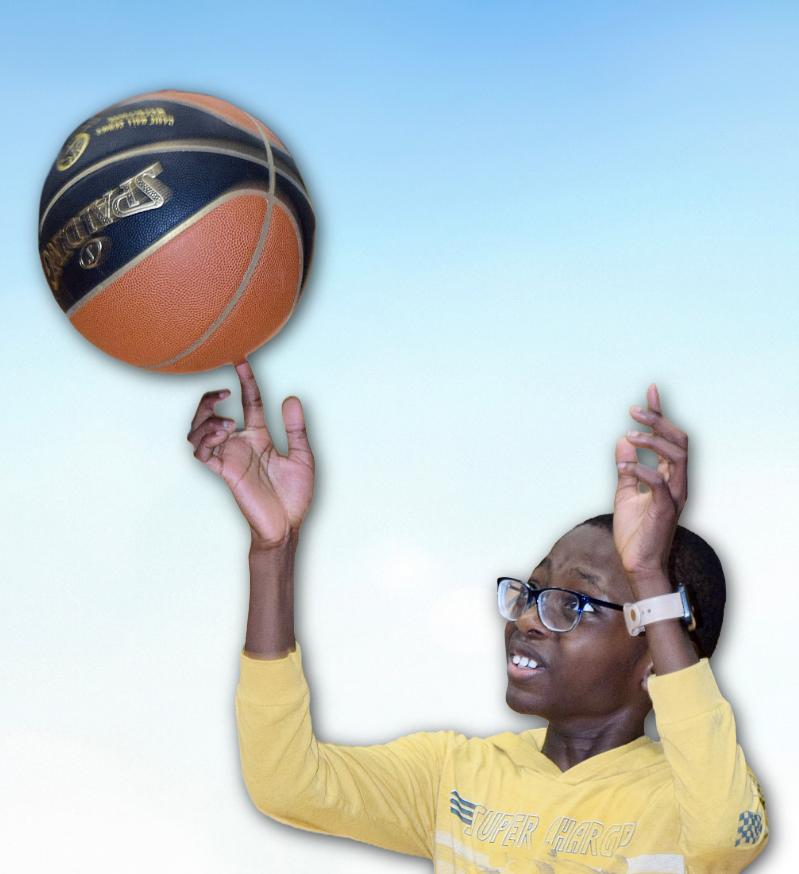




Niagara region is situated on treaty land. This land is steeped in the rich history of the First Nations such as the Hatiwendaronk the Haudenosaunee and the Anishinaabe, including the Mississaugas of the Credit First Nation.
There are many First Nations, Métis, and Inuit people from across Turtle Island that live and work in Niagara today. Bethesda stands with all Indigenous people, past and present, in promoting the wise stewardship of the lands on which we live.
Bethesda continues to evolve, growing in response to the changing needs, strengths, and aspirations of the people we support. At the centre of this evolution is our ongoing commitment to personcentered services that recognize each person’s right to be heard, included, and empowered in all areas of life.
This past year, we have remained focused on elevating the voices of the people we support while deepening our role within the community. Inclusion is not simply a value we speak to, it’s a principle we strive to live by through every service, partnership, and interaction.
We are proud of our continued investment in the well-being and growth of our staff. By providing ongoing education and training opportunities, we are strengthening our collective capacity to deliver innovative, responsive, and inclusive supports and services. Supporting our team’s development ensures that we remain leaders in the sector, delivering services rooted in compassion, dignity, and excellence.
Our commitment to community partnership has deepened this year. Through collaboration with local organizations, advocacy groups, and media, we are sharing the incredible stories and achievements of those we support, helping to build awareness, understanding, and connection across the region.
Throughout this publication, you’ll see how our shared efforts, guided by the voices of people with lived experience, are shaping Bethesda’s future and creating a more inclusive community for all.
On behalf of the Board of Directors and our Senior Leadership team, thank you for being part of this journey. Together, we look forward to continuing to build a community where everyone belongs and every voice is heard.
Respectfully,

William (Bill) Jackson

Paul McGowan Board Chair/President Chief Executive Officer
Bethesda provides, in the Spirit of Christ, inclusive, collaborative, flexible, and holistic supports and services, empowering people to build their personal capacity throughout life.
An inclusive community of supports and services that inspire, encourage, and empower children, youth and adults with intellectual and/or developmental disabilities, and their families, to live their best lives.
• Respect and Compassion
• Diversity, Inclusivity and Choice
• Collaboration
• Innovative, Quality Services
Thanks to the thoughtful leadership and strong governance of our volunteer Board of Directors, Bethesda is able to stay true to its mission and make a meaningful difference in the lives we serve .
Bill Jackson
President
Doug Peters Vice President
Cheryl Tyndall Secretary
Kevin Stienstra Treasurer
Bill Janzen Director
Beth Vanstaalduinen Director
Tom Wall Director
Sharron Haberfield Director
Rick Wiebe Director
Driven by a deep commitment to our Mission, Vision, and Values, Bethesda is putting its purpose into action each and every day. At the heart of this work is our Senior Leadership team, who guide these efforts with integrity, compassion, and a clear focus on creating meaningful impact.
Paul McGowan Chief Executive Officer
Alyson Wilson Director, Children and Youth Services
Liz Froese Director, Adult Clinical Services
Margaret Lockhart Director, Administrative Services
Shelley Mercer Director, Adult Services
We’ve been able to extend our reach and enhance the innovative, quality services that strengthen our community every day thanks to the support and collaboration of our community partners. Together, we’re building an inclusive community.






Niagara Region Children’s Services
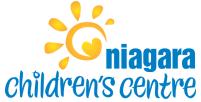



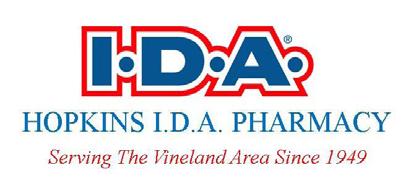








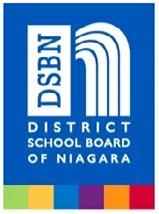
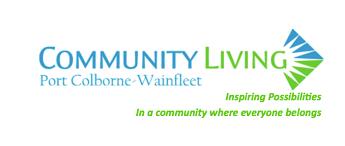







Ontario Disability Support Program







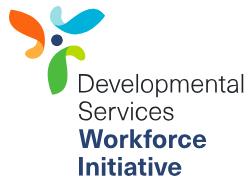







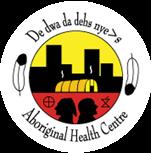


for bringing our stories to the heart of our community. Your support helps us connect with more children, youth, adults, and families, allowing us to offer the vital services and supports they need to thrive and live their best lives.











Partnering for Progress:
Evaluating the Impact of Bethesda’s Adult Clinical Services
Supporting Student Researchers

At Bethesda, research and evaluation are more than data collection—it’s about listening, learning, and shaping services around the real lives of the people we support. We believe that meaningful change begins with truly understanding the needs, experiences, and outcomes of those at the heart of our mission.
Our Adult Clinical Services team partnered with Dr. Michelle Vine from Brock University to co-develop a comprehensive program evaluation. This collaborative effort was designed to explore the effectiveness, efficiency, and impact of our services on the lives of people—using both qualitative and quantitative methods to paint a full picture.
This work builds on a longstanding relationship between Bethesda and Brock University, formalized through a new Memorandum of Understanding (see page 58 for more). This evaluation project marks the first major research initiative under this formal agreement, and we’re proud of the foundation it sets for future projects.
As part of this initiative, four Brock University students joined the project through various academic opportunities:
• David Beazely (Research Assistantship, funded by Match of Minds)
• Kiven Vuong and Xavier Orlando (Master of Public Health Practicum)
• Morgan Anderson (Independent Project: MPHA 5P99)
Additional support came from a Co-operative Education and WorkIntegrated Learning Canada (CEWIL) grant, enabling deeper student engagement and learning.
These students took on a wide range of research responsibilities, including:
• Collaborating with Bethesda’s evaluation working group
• Supporting the research ethics approval process
• Collecting and analyzing survey, interview, and focus group data
• Contributing to reporting, manuscript writing, and conference presentations
In fact, findings from this evaluation were recently presented at the Canadian Public Health Association conference in Winnipeg (April 2025)—a proud milestone for the team.
The evaluation focused on feedback from people supported by Bethesda’s Adult Clinical Services, asking how effective, efficient, and meaningful the services were to them. It also explored what helps—or gets in the way—of delivering the supports people need.
1. Service Effectiveness
Participants felt Bethesda’s services were helping them reach their goals - reporting positive changes in their daily life.
2. Service Efficiency
Participants largely agreed that services were timely, accessible, and made good use of available resources.
3. Social Validity
The services were seen as personally meaningful, respectful of individual values, and aligned with the goals of both people supported and their families.


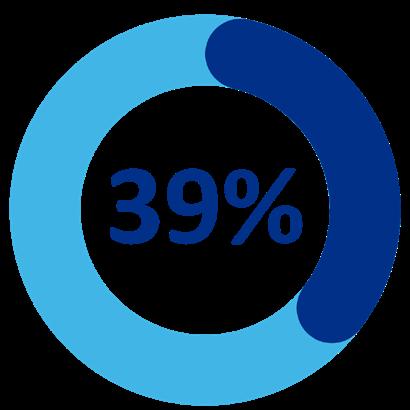


Qualitative interviews offered deeper insights, uncovering four key themes:
1. Gaps in Care
Some individuals expressed a need for more frequent support or faster access to services.
2. Positive Outcomes
Many shared how services led to new skills, better understanding, and life improvements.
“It’s helped me get back on my feet.”
3. Relationships with Providers
The clinical supports “gave me great insight into essentially, how to decode how my son may be communicating. And to make it easier to respond to his verbal needs.”
Overall, participants valued their relationships with staff, highlighting their understanding.
“They made me … feel heard … and just understood where I feel nobody else really does understand me in life.”
4. Broader Impacts
People described increased communication and improved daily functioning.
“It actually helps me get out of the house more.”
“It’s made it easier to understand what my son may be trying to communicate.”
Looking Ahead: What’s Next?
Here’s where we’re focusing next as the evaluation framework develops:
While most feedback was positive, with any evaluation there are always areas to improve upon. We are actively reviewing these areas to develop comprehensive plans to address areas of concern.
Building on What Works:
The evaluation offers a strong foundation. Supplementary data from interviews will further strengthen our understanding.
Bethesda and Brock University are excited to continue this partnership. We’re actively seeking new opportunities to engage students and advance research and evaluation opportunities to assist Bethesda in building programs that truly respond to the needs of our community.
At Bethesda, we believe that families and individuals deserve flexible, personalized support that truly reflects their lives and needs.
Thanks to your honest feedback and the thoughtful voices of those we support, we’re proud to announce a significant expansion of our Regional Respite Program, starting April 1, 2025.
These changes are more than just service updates, they’re about making life a little easier, more joyful, and more connected for the people who matter most: you and your loved ones.

We’re transforming our overnight respite model to ensure more focused care. Our respite home will now welcome four guests at a time, allowing for a more individualized and supportive environment where each person feels seen, heard, and cared for.
We understand that sometimes, the best place for support is right where you are. That’s why we’re introducing in-home respite care. This flexible approach lets families access help when and where they need it most.
We’re also expanding our community-based activities, so people can enjoy bowling, movies, theatre outings, and more. It’s a chance to build friendships, discover new interests, and simply have fun— because everyone deserves moments of joy.
Reliable relationships make all the difference. To support our expanded offerings, we’re welcoming Gillian Black as our new Respite Supervisor. With 7 years of experience as a Developmental Support Worker, Gillian brings deep compassion and energy to the role. She’ll be helping to lead our Respite team as we deliver these exciting changes.
Last year, many of you shared your thoughts in our family and caregiver survey. You told us that you wanted more choice, more community involvement, and support at home. We heard you—loud and clear.
These enhancements are also part of Bethesda’s Strategic Plan 2023–2028, which places a strong emphasis on community inclusion and expanding respite options.
We’re also proud to share that these changes have been made possible through our ongoing collaboration with the Ministry of Children, Community and Social Services. Together, we’re working to make respite more accessible, flexible, and meaningful for everyone.
Respite opened July 1999
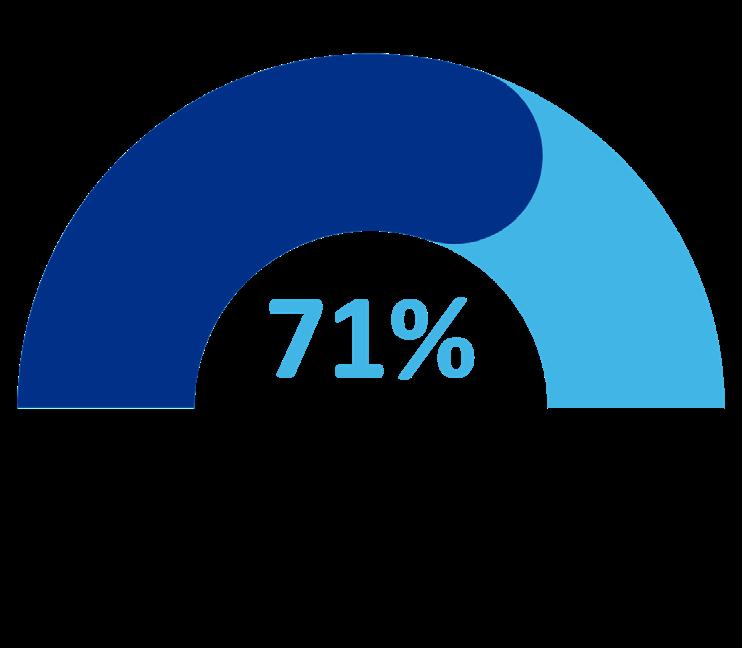
per cent of people supported welcome day, evening, or weekend community based activities

What’s Next?
We know that change can bring questions, and we’re here to support you every step of the way. If you have questions or just want to talk things through, our team is always here. You can reach us at 905.684.6918 ext. 326 or bboden@bethesdaservices.com.
As we look ahead to this new chapter, we are filled with hope and determination. These changes are rooted in your voices, guided by our shared mission, and built with care—so that respite truly feels like a break, a breath, and a support system you can count on.
Before Bethesda officially launched its expanded Children and Youth Mental Health and Wellness Services, a vision took root: one where every child, regardless of diagnosis or developmental stage, could access caring, professional support tailored to their emotional well-being.
Today, that vision is a reality. By establishing a clear starting point, increasing services, and raising community awareness, Bethesda is making measurable strides to support the mental health and well-being of children, youth, and their families.
To track growth and improve access to care, Bethesda first established a baseline of services, with a goal to increase mental health and wellness offerings by 50%. A minimum number of services per season was also set through the Children and Youth Services Guide; a strategic step to ensure consistent, year-round availability of support.

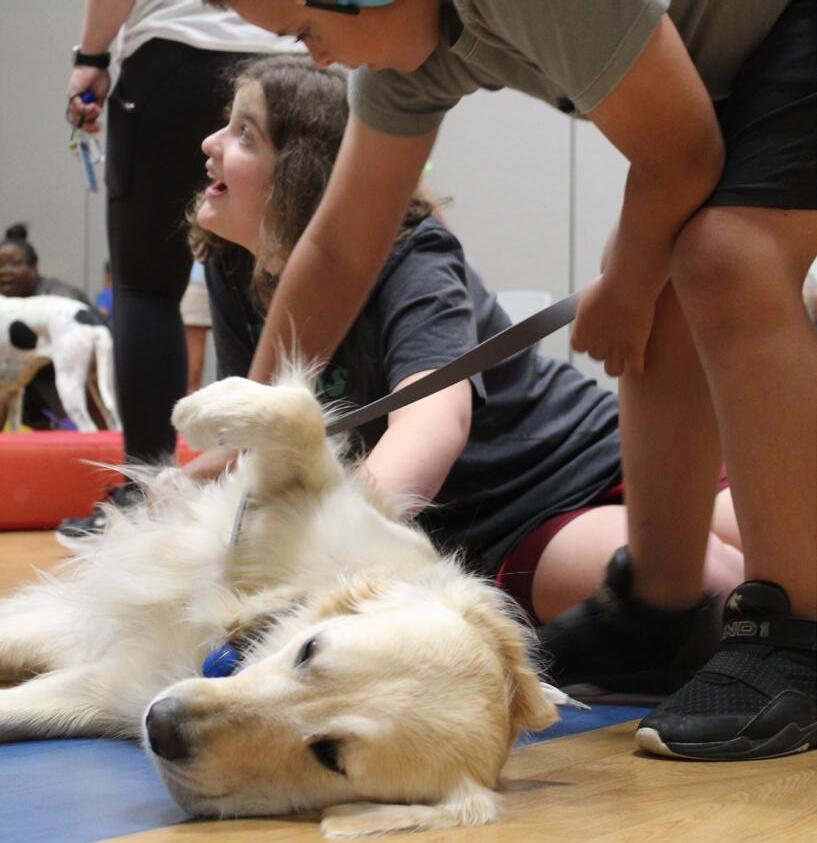
A multi-platform awareness campaign launched in early 2025 aimed to connect more families with the help they need. One of the campaign’s most impactful elements was a partnership with Cogeco’s YourTV Niagara, which produced and aired a series of mental health tip videos for parents, caregivers, and youth.
Campaign Period: January 20 - February 28 2025


In just six weeks, 16 new children and youth accessed or were awaiting services; a clear sign that more families are learning about and reaching out for the support they need.
Emily Jones, M.A., RP, a Registered Psychotherapist with Bethesda, stepped in front of the camera to film a 12-part mental health tip video series, bringing expert insights right into the homes of local families.
Topics included:
• Understanding Autism and Autistic Burnout: Strategies to Help
• The Neuroscience of Stress: Tips to Reset Your Brain
• The Link between Sleep and Mental Health
• Radical Acceptance: Making Peace with Things we can’t Change
• Dopamine: The Brain’s Reward Chemical
• Understanding Sensory Overload in Autism
These tips were designed to not only educate but to normalize conversations around mental health and reduce the stigma families often face.
“It was a refreshing change from my daily work,” Emily shared. “If even one person finds encouragement to try a new coping strategy or seek professional support, then the effort will have been worthwhile.”
Raising children is a journey filled with joys and challenges. Bethesda’s Mental Health and Wellness team equips caregivers with tools and guidance to help children:
• Understand and manage their emotions
• Strengthen resilience
• Build confidence
• Form healthy relationships
• Implement simple tools for stress relief
Sometimes, all it takes is one small tool to make a big difference. Here are a few strategies:





5 - 4 - 3 - 2 - 1
• Deep breathing: taking slow, deep breaths to relax your body
• Walking in nature: spending time in nature can help calm your nervous system and promote emotional resilience
• Practicing mindfulness: paying attention to your thoughts and feelings, without judgement
• Taking “micro-breaks” during busy or overwhelming moments
Bethesda’s team of Registered Psychotherapists and Social Workers bring deep experience in supporting children and youth with Autism Spectrum Disorder (ASD) and other developmental disabilities.
Whether a child is experiencing burnout, struggling with communication, or finding it hard to navigate daily tasks, the team works to:
• Create a safe and accepting space
• Strengthen emotional regulation
• Improve communication and social connection
• Promote self-awareness and growth
“Every child has strengths,” says Emily. “Our goal is to help them discover those strengths and build on them.”

Bethesda offers free consultations with experienced mental health professionals. If you’re concerned about your child’s emotional well-being or just want to learn how to better support their growth — we’re here to help.
Book a Free Consultation Today
Visit our Mental Health and Wellness page for more information
With the right tools and support, they can overcome challenges and thrive. At Bethesda, we’re honoured to walk beside families on that journey, one step, one tip, and one breakthrough at a time.
Over the past year, we’ve been actively finding new and meaningful ways to support, engage, and recognize our staff. Our goal is to make sure every staff member feels valued, connected, and well-supported throughout their journey at Bethesda.
When employees feel engaged, appreciated, and supported, the ripple effect is powerful. It leads to better outcomes for the people we support, stronger teams, and a more vibrant workplace culture.
To build on this, we’ve continued engaging staff through regular feedback opportunities, open communication, and targeted support strategies. One of the cornerstone projects currently underway is the development of a Retention and Recruitment Toolkit tailored for Bethesda. This resource outlines our formal approach to employee engagement and incorporates insights from the provincial Developmental Services (DS) Workforce Initiative. It’s all about making sure our strategies are grounded in both research and experience.

We know the importance of taking time to pause and celebrate. In 2024, we launched Quarterly Awards to recognize staff who go above and beyond in living our values. You can learn more about this initiative on page 78 and learn who our inaugural award recipients were.
We’ve also started to share internal announcements of new hires and service award recipients more regularly, helping us all stay connected and celebrate the contributions of our growing and long-serving staff members.


Employee feedback remains one of our most valuable tools for growth. We’ve deepened our collaboration with the CEO Committee, a diverse group of staff members from across the organization, who help shape new initiatives and strengthen existing ones.
To better support new team members, we introduced Buddy Interviews—pairing each new staff member with an HR “buddy” who checks in during those important first months. We also opened informal office hours with the Chief Executive Officer at different locations for all staff, creating space for honest conversations that help us understand their experience and find ways to improve it. Regular evaluation is a big part of how we stay on track. Through surveys, committee conversations, and one-on-one interviews, we continue to listen, reflect, and refine our practices.

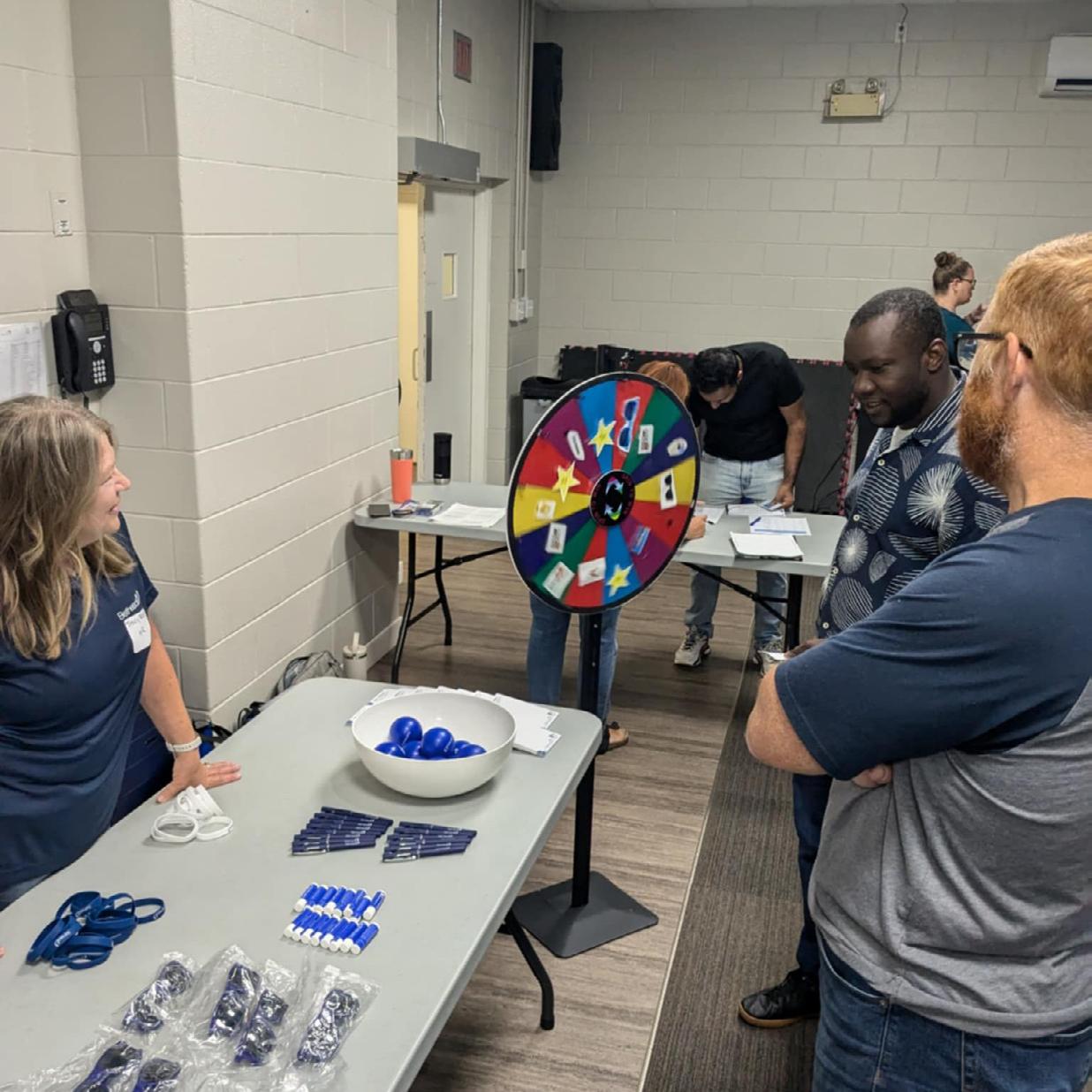
We recognize that compensation is more than just a pay cheque, it’s about total value. That’s why we’ve introduced Annual Total Compensation Letters for each staff member.
These personalized summaries show the full picture: from base salary to benefits and additional supports that contribute to each person’s overall wellbeing. We want our team to know exactly what they’re receiving and how much we invest in them—not just financially, but through our commitment to health, growth, and development.

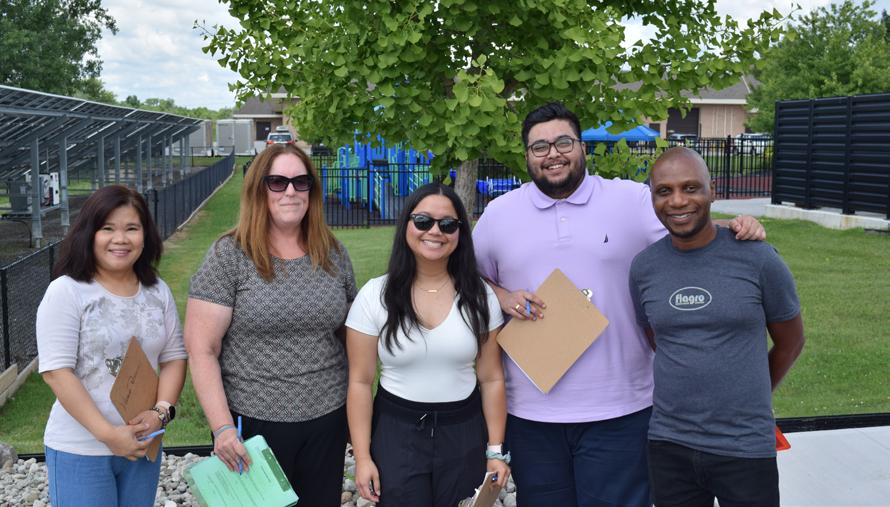
What’s Next?
Our journey doesn’t end here. We’re committed to ongoing review, evaluation, and improvement. We’ll continue learning from our Leadership Team’s Action Learning Projects ( see page 71 to learn more ) and using that insight to build an even stronger, more supportive workplace.
Because when we invest in
our
people, everyone benefits: our staff, the people we serve, and the entire Bethesda community.
For some students with autism in the Niagara region, the traditional classroom environment can feel overwhelming and inaccessible. The pace, social demands, and sensory challenges of mainstream education often stand in the way of their success, not because of a lack of ability, but because the environment isn’t always designed with their unique needs in mind.
Recognizing this, a group of dedicated educators, clinicians, and community leaders came together with one goal: to create a learning space that truly supports every aspect of a student’s growth, not just academically, but socially and emotionally too.

In September 2024, that vision became a reality with the launch of EmpowerED—a pilot Education and Community Partnership Program (ECPP) designed to support high school students with autism in Niagara.
Thanks to a collaboration between the District School Board of Niagara (DSBN), Bethesda’s Children and Youth Services, and other community partners, EmpowerED offers a more personalized and therapeutic approach to education. Students earn high school credits in a small, supportive setting while building essential life skills such as emotional regulation, communication, and job readiness.
The first year of EmpowerED welcomed 7 students in the Fall and 8 in the Spring. Each classroom is led by a full-time DSBN teacher and supported by a Bethesda Applied Behaviour Analysis (ABA) Interventionist. But the support doesn’t stop there. Students also benefit from one-on-one consultations with a multidisciplinary team including a Social Worker, Psychotherapist, Behaviour Therapist, and Occupational Therapist.
This collaborative approach means every student receives tailored support, addressing their unique learning styles, mental health needs, and long-term goals. For families and students alike, EmpowerED represents not just a school program but a life-changing opportunity.
The success of EmpowerED is a direct result of a shared commitment to innovation and inclusivity. Ongoing leadership and oversight are provided by a DSBN Principal, a Bethesda Manager, and a Registered Behaviour Analyst (Ont.), ensuring the program maintains the highest standards of care and educational practice.
This initiative has been made possible with support from the Ministry of Children, Community and Social Services and Bethesda’s Foundation, whose generosity helped launch and sustain the pilot program. Looking ahead, EmpowerED is continuing into the 2025-26 school year as permanent funding options are explored.
“It has helped me with my autism allowing me to get my work done and allowing me to feel equal.
“It allows me to be more flexible with work and/or breaks.
“It allows me to try new things like making food or going to field trips to different places.
“I have been able to be focus calm collected.
“I have been able to deal with trauma.
“The staff have been more supportive and helpful especially Melissa F and Mrs. P.”
-Student, EmpowerED Classroom
“Having extra support from the ABA Interventionist has been instrumental in helping [my son] learn to cope more successfully when challenging emotions or situations arise. [He] has shown an incredible amount of growth emotionally and academically. He is more confident and has even displayed leadership qualities within the class. His attendance and outlook has improved dramatically. For the first time in years both he and I feel possibility for his future.
“The EmpowerED classroom has given me hope that there can be a space for Autistic students that desperately need an alternative environment. Inclusivity doesn’t just mean making a mainstream classroom more accommodating; it also means providing safe, alternative spaces for those students that need it.”
-Parent, EmpowerED Classroom
“This classroom is very good for me because there is less students, which means it’s less overwhelming and less chance for bullying, which would happen at my previous school. It also means that there is more opportunity for the teacher to talk to me individually to explain stuff and help me understand the work so I can complete it to the best of my abilities. In this environment, it is possible for me to understand stuff and not be overlooked by the teachers left to my own distractions. The work is also easier for me to do and is more suited to my strengths, which allows me to operate on a level similar to a neurotypical.”
-Student, EmpowerED Classroom
At Bethesda’s Children and Youth Services (CYS), our work is guided by a simple but powerful belief: when we support the whole family, children and youth thrive.
Through Foundational Family Services offered under the Ontario Autism Program (OAP), Bethesda provides a wide range of opportunities to help families grow stronger together. From recreational groups and workshops to inclusive events and family activities, we focus on building capacity, nurturing connection, and creating space where everyone belongs.
We’re proud to offer services both at our Niagara Family Centre and in the heart of the community making sure families can access support wherever they are.


Community Comes Alive Through New Partnerships
This year, we were honoured to partner with like-minded organizations to bring even more joy, connection, and opportunity to the families we serve.
A Slam Dunk with the Niagara River Lions




On March 10, 2025, our Niagara Family Centre was buzzing with excitement as children, youth, and caregivers joined the Niagara River Lions for a basketball clinic like no other.
Led by River Lions point guard and community ambassador Kimbal Mackenzie, the event gave kids the chance to boost their basketball skills, express themselves creatively, and feel part of something bigger. With team mascot Dunkin making a surprise appearance, a craft station for quieter play, and swag bags for everyone, the event had something for every child.
Parents cheered from the sidelines, shared in the laughter, and made meaningful connections with other families. The day wrapped up with a high-energy scrimmage that celebrated teamwork, sportsmanship, and pure fun.
In the fall, we took learning outdoors with a nature-based group run in partnership with ConnectByNature. This unique program was all about promoting biophilic health™, emotional regulation, and resilience all within a forest setting.
Guided by a Registered Psychotherapist, an Occupational Therapist, and Therapeutic Respite Support Workers, participants explored the woods, built forts, and even tried to catch chickens (yes, real ones!). The relaxed, natural setting helped children improve focus, self-regulation, and problem-solving skills.
One parent, whose child finds classroom learning challenging, shared that it was “the most beneficial” learning opportunity to date for their child—a testament to the power of meeting children where they thrive.


Our holiday events are more than just festive, they’re opportunities to build community, celebrate inclusion, and create joyful memories for families who may not always find accessible holiday experiences elsewhere.
Over 60 children and caregivers joined us for a magical Whoville-themed celebration, complete with books and stuffies donated by PetSmart and First Book Canada. From the cozy hot chocolate bar to the bouncing fun of the inflatable castle, every activity was designed to delight.
Parents shared how welcomed they felt at Bethesda, with one remarking: “It’s the only holiday party that we can comfortably attend with our kids.”


Over 100 people participated in a sensory-friendly drive-thru light experience, winding through over 1 million sparkling lights. Hot chocolate, cozy blankets, and holiday resources helped families enjoy a laid-back evening from the comfort of their own cars.
For families with children requiring higher support, this event was a game-changer. One parent called it the most accessible event for a single parent with three active young children, while another said it made for a safe playdate.
At Bethesda, we believe that caregivers deserve care, too. They are the backbone of their families and communities and when they are supported, everyone benefits.
Thanks to generous community support, including Amici’s Banquet Hall and Niagara College’s culinary program, 109 caregivers were treated to an evening designed just for them. From a terrariummaking station to live music performed by a person supported through Bethesda’s Adult Services, every detail reflected care and gratitude.
Behind the scenes, more than 50 Bethesda staff and teen volunteers came together to offer a seamless experience, complete with childcare and warm hospitality.
Our ACT workshops help caregivers develop emotional resilience, mindfulness, and selfcompassion; all essential tools for those supporting others.
The response has been overwhelmingly positive:
To build on this success, we introduced a Peer Practice Group, allowing past participants to deepen their skills within a supportive community. Families consistently rate this offering a 5/5.

“I felt supported and valued throughout the workshop”

“It was important to focus on myself; my thoughts, goals and experiences. It’s too easy and not beneficial to always focus on the kids and helping them with their issues and neglecting mine.”

“It was a powerful couple of days. I have learned a lot and found peace and patience. Thank you!”
Our Peer Mentorship Program empowers youth to step into leadership roles and support their peers in recreational settings. Participants learn communication, leadership, and problem-solving skills, and gain confidence along the way.

“I like being a peer mentor at Bethesda because I want to show other autistic youth that they can do the same as me for others when they get older.”
-Hunter, Peer Mentor
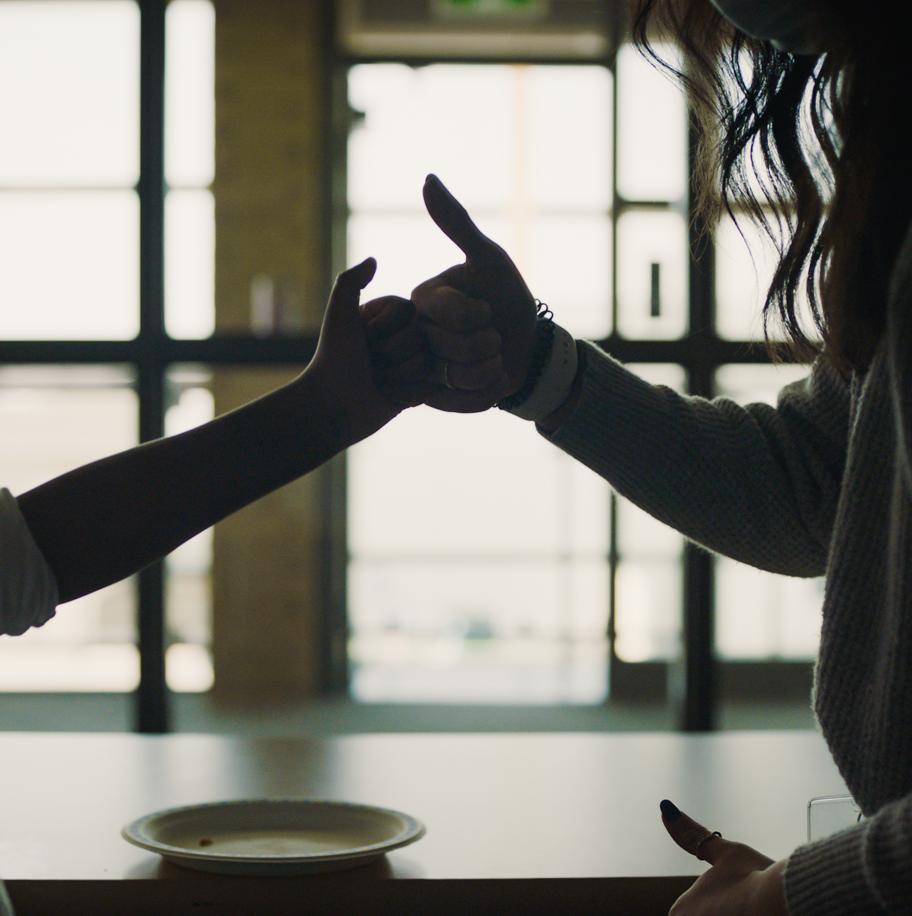
Summer was full of moments that brought families together and gave children new ways to play, grow, and connect.
Thanks to the District School Board of Niagara, 162 children and youth accessed 27 new summer group services. This partnership expanded access to enriching experiences during a time when many families need extra support.
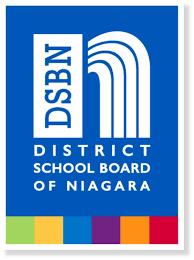
Families rolled into Pla-Mor Lanes for an accessible, beginner-friendly bowling event, full of laughter and zero pressure.
Friendly therapy dogs brought comfort and joy to children and caregivers alike, creating heartwarming moments of calm connection.
Inclusive and energizing, our drum circle offered everyone the chance to connect through rhythm, creativity, and community


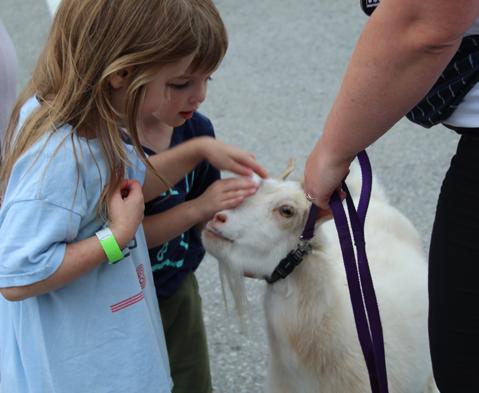

As we reflect on the year, what stands out most isn’t the number of events or programs—it’s the moments of connection. A child smiling with new confidence. A caregiver feeling seen. A teen stepping up as a mentor. A family sharing laughter in a space where they feel fully welcome.
At Bethesda’s Children and Youth Services, we are building more than programs—we are building belonging. And we can’t wait to see what we’ll create together next.



This year, unique circumstances influenced attendance for our ASD Respite program. Despite those challenges, we remained committed to supporting children, youth and families through the ASD Respite program and look forward to reaching even more people moving forward.
Before Bethesda’s New Advocacy Champions held their first official meeting in early 2025, the people we support were already paving the way for something transformative: a space where their voices, their choices, and their experiences are not just acknowledged but amplified.
For far too long, the voices of people with developmental disabilities were often quieted or overlooked. Now, thanks to a grassroots group formed by those with lived experience, that silence is being broken in powerful, personal, and deeply meaningful ways.
Edith, who is supported by Bethesda’s Familyhome program, shares how meaningful it is to make her own decisions.
Whether it’s deciding to attend an Easter service, choosing not to go on a group outing she might not enjoy, or even selecting who supports her in her home, Edith’s words remind us that independence isn’t just about ability, it’s about agency.
It’s about being seen as capable, and as someone with preferences, opinions, and the right to self-direct her life.
“I find it great to have choices. I don’t like when others make choices for me. I like to plan how my day will look. If I need help with something I can ask my Bethesda worker. It is important I am given choices, i.e. the choice to attend Bethesda Easter Service.
“It is important I have the choice not to attend group outings that I may not enjoy. It is important I trust the person who helps me clean my apartment – I do not like others making decisions for me. Bethesda is very helpful to me. I have the choice to drive myself to appointments or have staff drive me.”

For Summer, a Supported Living individual, the journey has been about reclaiming control over her mental health and building a life where stress no longer dominates.
“My staff help me. I have more control over my mental health. I have a proper diagnosis and on proper medication. It has been helping me a lot. I used to have high anxiety but now, I can push through it.
“I have coping skills now like fidgets, leaving the situation, listening to music or playing video games. If I need someone to talk to, I have staff who listen. I have privacy here. It’s less stressful here. I can be alone if I want to. The staff check in on me here. I have more freedom here. I can say what I want or do what I want to do.”
In a home where privacy is respected and staff are available when needed, Summer says life feels more manageable—and more hers. She buys her own groceries, speaks her mind, and enjoys the balance between independence and support.
Patti, another SIL individual, models what self-advocacy looks like in action.
“I speak up for myself when I have concerns. I feel comfortable talking to my staff when I have a concern.
“I told my staff I was no longer comfortable with my family doctor and would like help finding a new one. My staff provided options and are helping me find a new doctor close to me.
“I provided my preferences and comfortability level. I am involved in the process of finding the right doctor for me.”
For Patti, it’s not just about being involved in decisions, it’s about being centred in them.
Trauma-informed care, respectful communication, and staff who build trust over time are not preferences— they’re essential.
And her voice, like many others, is shaping how services respond with dignity and humanity.
Formally established in early 2025, The New Advocacy Champions is a self-advocacy group made up of people receiving services from Bethesda. Every member brings their own lived experience, strength, and vision for what real inclusion looks like.
Their goals are bold and deeply human:
• To ensure unheard voices are finally listened to
• To be treated equally
• To help stop bullying
• To be accepted for who they are
• To show the world they have their own thoughts and feelings
• To make a difference
This is more than advocacy. It’s leadership, it’s education, and it’s change from the inside out.

The group’s Executive Committee was elected in February 2025, and held its first meeting in March.
Executive Committee:
• Chairperson: Patti (Supported Independent Living)
• Vice-Chair: Austen (Familyhome Program)
• Secretary: Emily (Supported Living)
• Members:
• Lise (Familyhome Program)
• Lori (Supported Living)
• Sharon (Supported Living)
Supporting them is lead advisor Sandie Narsansky and six other advisors from across Adult and Clinical Services, along with a dedicated liaison, Shelley Mercer.
Together, they are setting the foundation for the group’s growth.

Thanks to the support of Bethesda’s Foundation, four members of the New Advocacy Champions will attend the Speaking Out Conference in Port Elgin.
This annual gathering brings together over 300 people from across the Developmental Services sector. It’s an exciting opportunity for our advocates to build confidence, practice public speaking, connect with peers, and share their insights on a larger stage.
Bethesda’s self-advocacy group exists to ensure that the people we support are not just participants in our services, they are partners, leaders, and educators. Through peer support, feedback to Senior Leadership, and community education, The New Advocacy Champions are creating a future where everyone is truly heard, seen, and valued.
Because when people are empowered to speak for themselves, everyone listens—and real change begins.
At Bethesda, our mission is rooted in empowering people with developmental disabilities to thrive in their communities. As part of our five-year strategic vision, we’re thrilled to share some exciting progress that directly supports this goal.
Many individuals and families rely on Passport funding to access the supports they need, whether it’s help at home, community participation, or caregiver respite. Until now, these supports have been offered primarily to people already receiving services at Bethesda. But that’s changing.
We’ve Expanded
Thanks to the dedication of our team, Bethesda is now in a position to extend Passport services to adults in the community, regardless of whether they are currently enrolled in other Bethesda programs. This move will create more opportunities for people to participate meaningfully in their communities, develop new skills, and access supports that truly reflect their needs and goals.
To lead this important work, we welcomed Kailey Cheropita as Bethesda’s new Manager, Passport Services. Kailey brings a strong background in administration and community engagement. Since joining Bethesda in 2021, she has played a vital role in connecting individuals with specialized services, and she has brought the same passion and insight to this position.
To support the expansion of Passport services more broadly, efforts have been made to strengthen understanding and capacity across the organization. These efforts have focused on increasing awareness of how Passport funding can be used and encouraging thoughtful, person-centered planning.
Information sessions and ongoing conversations have already led to deeper engagement among team members and more strategic use of available funds. In some cases, this has opened the door to special funding opportunities for individuals who may have previously gone without.
Through ongoing analysis, it’s become clear that not everyone finds it easy to identify ways to use their Passport funding—particularly those who are more comfortable at home or less inclined to participate in typical community activities. This insight is helping guide Bethesda’s future planning, with the goal of ensuring that everyone has access to meaningful, personalized options that reflect their interests, comfort levels, and goals.
As part of this expansion, Bethesda now offers a growing range of Passport supports to the broader community:

Adults can hire a Bethesda Support Worker to accompany them on outings, help build skills, or provide respite for caregivers. Families can choose to pay upfront and get reimbursed through Passport, or Bethesda can manage the billing directly using allocated Passport funds.

People and families remain fully in charge of how their Passport funds are spent with Bethesda simply helping to make the process easier. We support individuals by managing the paperwork and ensuring funds are used appropriately and efficiently, without making any spending decisions ourselves.

We also run community events throughout the year that Passport funds can cover. Past events have included a Taylor Swift-themed craft night, Christmas karaoke, and a virtual social room. Upcoming offerings include a riverboat cruise, backyard BBQ, and cookie decorating class—all designed to help individuals connect, have fun, and build community.

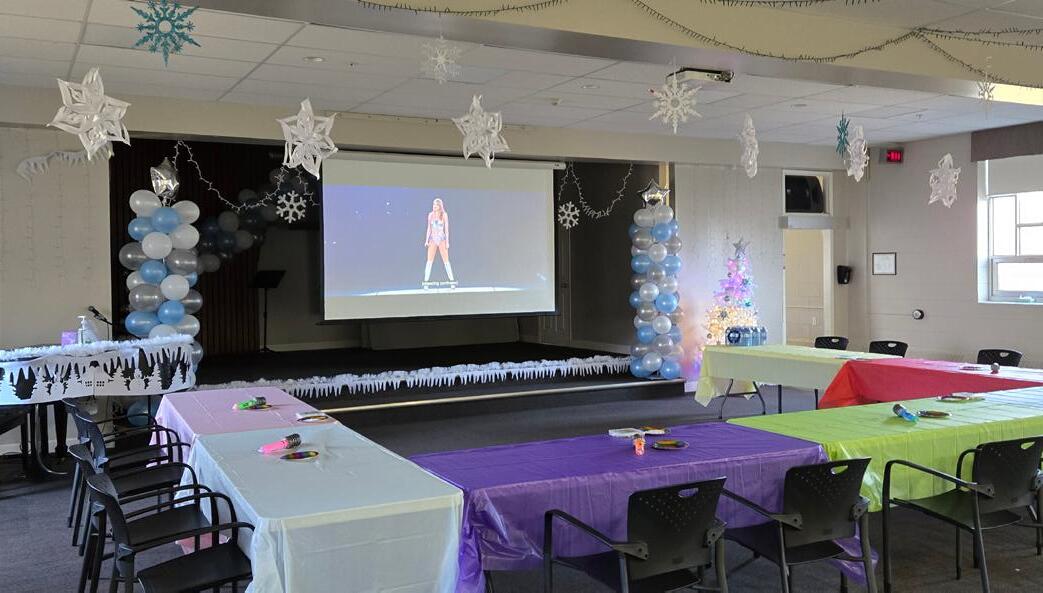
All upcoming events are posted on our website: bethesdaservices.com/en/adult/events
Together, we’re opening new doors and helping more people live fuller, more supported lives. Stay tuned for future updates as this important work continues to grow.
Since implementing the expansion, Passport utilization for the people we support has increased by 15.69%

Over the past year, growing partnerships and expanded community inclusion options have opened new doors for the people in our Day Programs and Recreation services. They’ve embraced life with energy, creativity, and a strong sense of belonging. From meaningful acts of giving back to joy-filled adventures, every moment reminded us of the power of connection and the importance of living well—together. This progress reflects Bethesda’s strategic direction to build inclusive communities where everyone has the opportunity to connect, contribute, and thrive.
People supported by the Schmon Day Program stepped up to care for their neighbourhoods. From joining the St. Catharines Downtown Cleanup to crafting heartfelt Christmas cards for seniors in long-term care homes, the focus was on kindness and inclusion.
An incredible 105 handmade cards were delivered to 105.7’s holiday drive!
Participants also volunteered at Calvary Church, where they collaborated on welcome cards, bringing a smile to new members of the community.
In December 2024, program members took part in a food and gift drive, helping collect donations for local families and personally delivering them to Market Square.

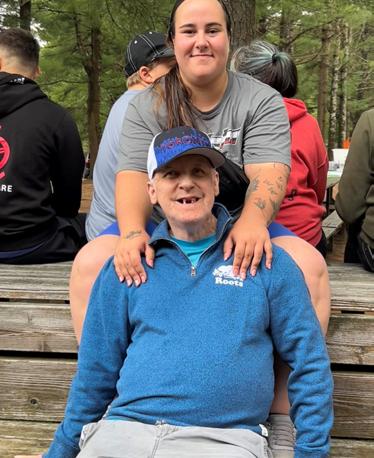
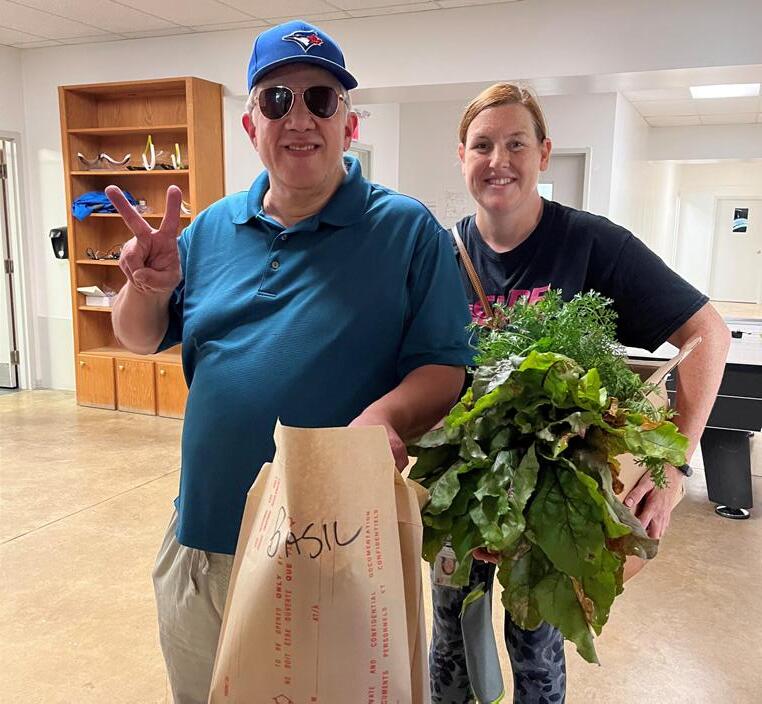
From hiking St. John’s Conservation Area to joining the St. Catharines Nature Challenge, people embraced the outdoors. By photographing birds, plants, and animals, they built both awareness and appreciation for the natural world and deepened their bonds with each other.

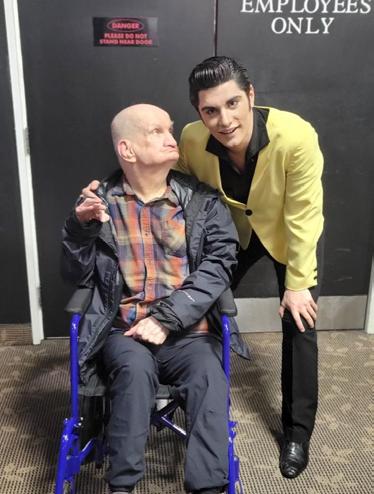



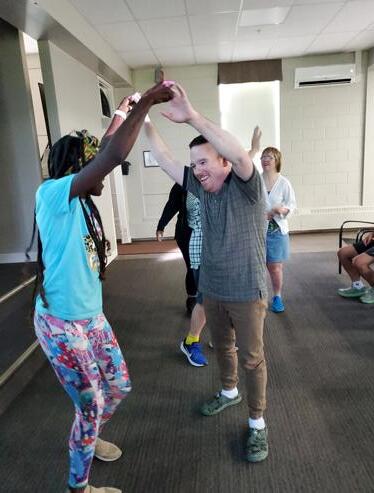

The Elvis Festival brought music, dancing, and smiles to 60 people supported and 34 staff. It was more than entertainment, it was a shared celebration of joy and belonging.
From the awe of Cirque du Soleil and the energy of the Harlem Globetrotters, to the excitement of Canada’s Got Talent and the Price Is Right Live—where Derek Z. got selected from 3,000 attendees!—participants got to be part of unforgettable moments.
Whether horseback riding at Iron Spirit Farm, cruising the Grand River, enjoying picnics at Heartland Forest, or visiting a tulip farm for Mother’s Day, every outing created cherished memories.
Mental wellness was a big focus this year, with workshops like “Emotion Surfing,” “Letting Go,” and “Be Kind to Your Mind” combining art, discussion, and skill-building. Colin L.’s artwork from the latter was a standout, highlighting the beauty of selfkindness and inner strength.
Thanks to students from the Ontario College of Health and Technology, 22 people experienced a professional massage—many for the first time. Their reactions? Unanimously glowing sharing this was one of the best things they’ve ever done.
Nearly 120 people gathered for the beloved annual camp getaway. Highlights included hayrides, tie-dye, karaoke, chapel, archery, campfires, dance parties, and tubing. It was a time of pure connection, freedom, and joy.
Participants took trips to Safari Niagara, Americana Water Park, and the Royal Botanical Gardens’ Alice in Wonderland exhibit. Wellness stayed front and centre with yoga classes and local nature walks.
From gardening in raised beds to bowling, indoor greenhouse projects, and scenic walks, the Witham Centre continued to be a space for laughter and relaxation.
Whether attending bingo nights in Beamsville, swimming at the YMCA, or taking in the beauty of a Japanese Flower Show, the people we support filled their days with meaningful experiences. More than just events, these were opportunities to express themselves, explore new interests, and feel deeply connected to the world around them.
After the excitement of the March Children and Youth Services basketball clinic with the Niagara River Lions, the energy kept going—this time with a fantastic follow-up event at Fly Road in Vineland on April 24, 2025. And what an afternoon it was!
Adults supported by our programs had the incredible opportunity to hit the court with River Lions point guard and community ambassador, Kimball MacKenzie. Known for his skill, leadership, and heart, Kimball led a fun and inclusive skills session that had everyone dribbling, passing, and shooting like pros.
But it wasn’t just about basketball—it was about connection, confidence, and community.
Dunkin, the team’s beloved mascot, brought plenty of laughs (and posed for tons of photos!), while the CEBL Championship trophy made for a special photo-op that gave everyone a taste of the big leagues. Phones were out, smiles were wide, and the pride was unmistakable.
For many, this was more than just an afternoon of sport, it was a celebration of what’s possible when communities come together. The River Lions brought the spirit; our people brought the heart.

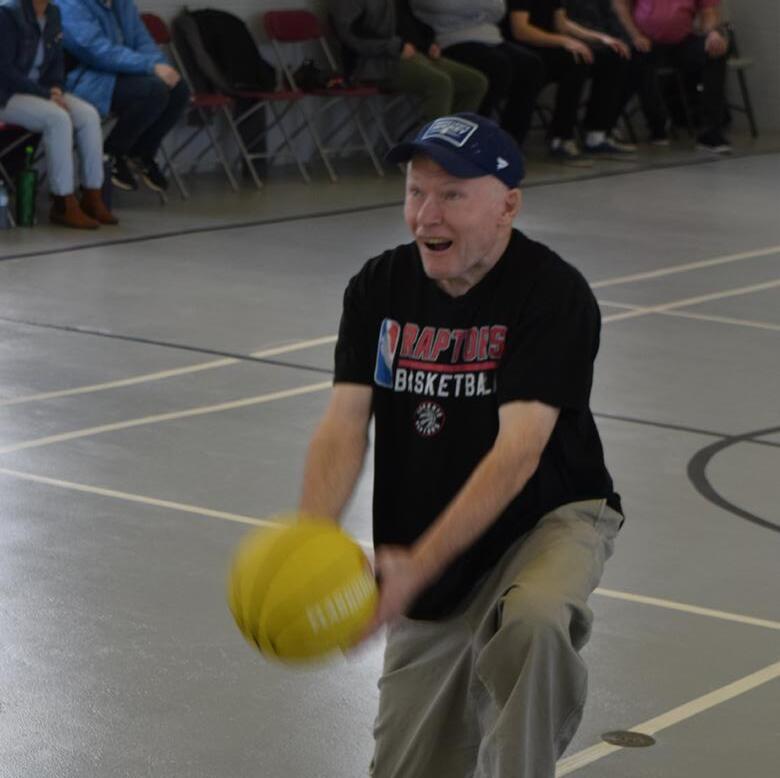

This past year was full of moments that celebrated the individuality, potential, and joy of the people we support. With new partnerships, community engagement, and a continued commitment to mental and physical wellness, we look forward to even more opportunities to help people live their best lives in the year to come.


We heard from our community that our Respite model was limiting participation. See More Choice, More Connection, More Support: A New Chapter for Respite at Bethesda to learn how we have addressed this in collaboration with the Ministry of Children, Community and Social Services.
For people with intellectual and developmental disabilities (IDD), becoming involved in the criminal justice system can be an overwhelming and deeply isolating experience. The court process is filled with complex legal language, rigid procedures, and expectations that are difficult for many to navigate.
All too often, people with IDD find themselves caught in a cycle — entering the justice system repeatedly without ever receiving the support or understanding they truly need. The consequences are real: lost opportunities, increased vulnerability, and the perpetuation of stigma and misunderstanding.
Recognizing that traditional justice models often fall short for those with mental health and developmental challenges, communities are beginning to reimagine how justice can be served with compassion, collaboration, and individualized care. Bethesda is part of this change.
In October 2023, the Niagara Region took a significant step forward with the launch of the Mental Health and Drug Treatment Court (MHDTC). This innovative initiative is designed for people living with mental health challenges, substance use disorders, and/or intellectual and developmental disabilities. Instead of punishment, the court offers a path to healing, one that prioritizes rehabilitation, public safety, and long-term success.
What makes the MHDTC unique is its team-based, therapeutic model. Justice professionals, health care workers, and community agencies work side-by-side, not in isolation, to support individuals through the court process in a way that’s person-centred and empowering.
Bethesda’s Dual Diagnosis Justice Case Management (DDJCM) program is proud to be one of those key partners. Through advocacy, case coordination, and support, DDJCM ensures that people with IDD are not just seen by the court system but truly understood and supported.
Entry into the MHDTC isn’t automatic. It starts with a collaborative application process that includes the individual, their defense counsel, and Bethesda’s DDJCM (or another service provider). Together, they create a personalized rehabilitation plan that reflects the individual’s goals and needs; not something imposed on them, but built with them.
These plans often include a wide range of community supports, from mental health services to housing assistance, addiction treatment, and developmental support. Once the application is submitted and approved by the Crown, Bethesda’s DDJCM team remains by the individual’s side, offering ongoing advocacy, attending bi-weekly court appearances, and updating the MHDTC team on their progress.
Since the court’s inception, Bethesda has supported 20 individuals through this alternative justice stream. So far, six individuals have successfully graduated — each one a powerful example of what’s possible when justice is paired with compassion and tailored support.
Graduation doesn’t just mean completing a court program. For many, it marks a turning point where community connections are made, selfworth is reclaimed, and a life once derailed is put back on track. For people with IDD, being diverted from the traditional justice system and into a more therapeutic environment has the potential to reduce recidivism, restore dignity, and create lifelong change.
Bethesda is honoured to walk alongside individuals in this journey and to be part of a broader movement toward a more just and inclusive system. The work continues, but with each success story, the vision becomes clearer: a justice system where everyone has a fair chance to be heard, supported, and empowered to thrive.

Mental health matters to all of us, but for people with Intellectual and/or Developmental Disabilities (IDD), the journey can come with unique and often overlooked challenges.
While many people may experience mental health concerns during their lifetime, people with IDD are at higher risk due to a number of complex and interconnected factors. These aren’t just statistics—they’re real experiences that deeply affect people’s daily lives, their sense of self, and their ability to participate fully in their communities.
For many people with IDD, financial constraints are a daily reality. Relying on income support programs can mean not having enough to cover basic needs, let alone afford the tools or services that support mental wellness, like transportation, recreation, or counselling. This financial strain can contribute to feelings of isolation and hopelessness.
The emotional toll of trauma is another pressing concern. People with IDD are up to four times more likely to experience difficult and harmful life events, ranging from emotional and physical abuse to neglect and bullying. These experiences leave deep scars and significantly increase the risk of mental health conditions like anxiety and depression.
Forming and maintaining friendships can be especially tough for those with IDD. Social networks are often limited, which means less opportunity to share experiences, find comfort, or feel a true sense of belonging. Without these support systems, it becomes harder to build resilience against mental health challenges.
Stigma remains one of the most damaging barriers to mental health support for people with IDD. These negative beliefs and assumptions from others can feel like an invisible weight people carry every day.
“They can’t be independent” leading to fewer choices and less autonomy in everyday life.
Some common and harmful stigmas include: These assumptions don’t just hurt feeling, they erode self-worth and can seriously impact someone’s mental health, making conditions like depression and anxiety more likely.
“They’re different” resulting in stares, teasing, or being ignored in social settings.
Despite the urgent need, mental health services designed for people with IDD remain limited. Many face long waitlists or services that aren’t tailored to their unique experiences, leaving them to struggle without the help they need, when they need it most.
At Bethesda, we recognize how critical it is to offer timely, compassionate support for people with IDD, especially during moments of crisis or transition.
That’s why we introduced Rapid Mental Health Supports, a short-term service available shortly after a person joins a partnership with Bethesda.
This program is designed for people at increased risk of mental health concerns, such as those who have:
• Recently been hospitalized due to mental illness,
• Shown signs of self-harm or suicidal thoughts,
• Gone through a difficult life event.
Participants receive 1 to 3 sessions focused on emotional support, coping strategies, and guidance to other community resources. The goal is to reduce immediate risks and bridge the gap while they wait for longer-term services.

“This program was helpful because I got help faster than the last time I asked for help, to navigate my feelings and emotions around a tough situation that I am currently dealing with.”
— Rapid Mental Health Participant
At Bethesda, we believe that every person deserves to feel heard, respected, and supported in their mental health journey. By addressing the unique needs of people with IDD, we can help create a world where everyone has the opportunity to thrive.
If you want to learn more about how you can support this work or connect someone to our services, please reach out. Together, we can reduce stigma, increase access, and build stronger communities for all.
On March 24, 2025, nearly 200 professionals, self-advocates, and service providers from over 45 organizations across Ontario gathered for the Sexual Health and Wellbeing for All Conference. The event marked a key step in expanding inclusive sexual health education and support for people with developmental disabilities.
The day began with a powerful keynote from advocate Krystal Nausbaum, who spoke to the real-life impact of accessible, person-centred education—reminding attendees of the importance of empathy, dignity, and inclusion.
Six workshops—led by partners like Community Living Grimsby, Surrey Place, Montage Supports, McKenzie Health, and Bethesda—covered topics from online safety to aging and supporting survivors of trafficking. Attendees praised the quality and relevance of the content.
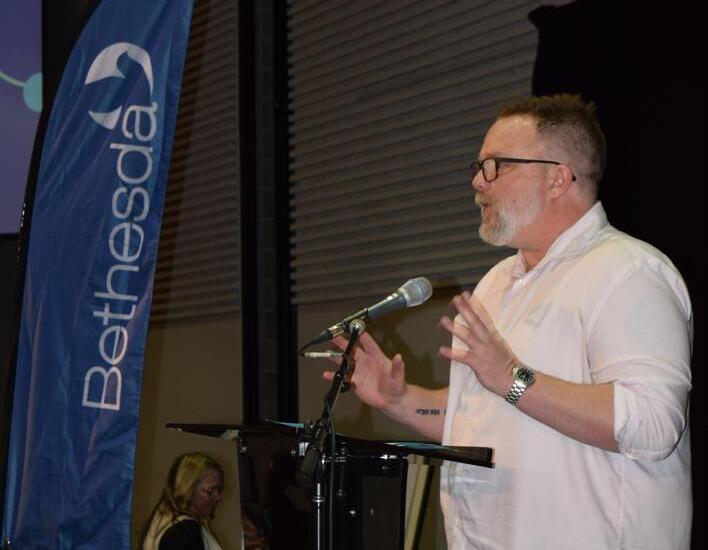
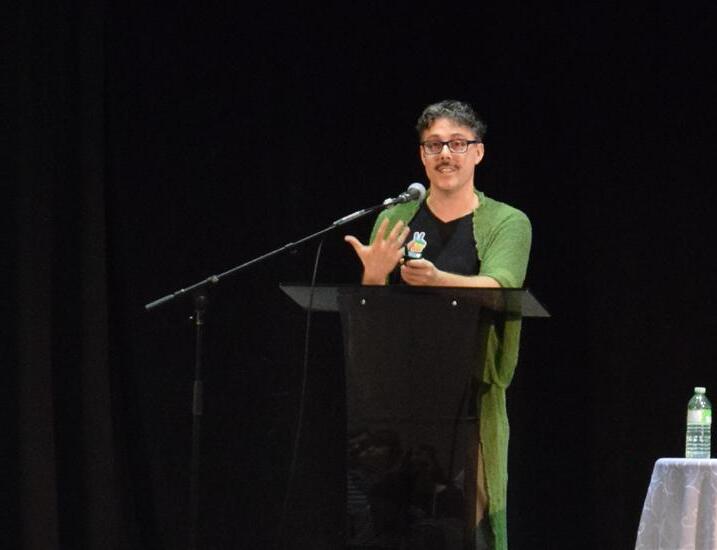

“The quality of the speakers was fantastic. I had a hard time deciding which session to attend!”
A vendor space featuring groups like Willowbridge, Safe Hub, and Sparkle Friends further strengthened sector collaboration and resource sharing.
This event reflects our ongoing commitment to strengthening the sector through training, partnerships, and lived experience. Together, we’re building a future where everyone has the right to learn, love, and lead safe, fulfilling lives.
At Bethesda, we believe in the power of connection and the joy that shared experiences can bring—especially for adults with complex behaviours, who often face unique barriers to social inclusion. This past year, our Community Response Program (CRP) has been hard at work creating meaningful opportunities for people to gather, build friendships, and enjoy life together.
These events do more than entertain, they foster community, confidence, and a deep sense of belonging. Each gathering is thoughtfully designed to meet people where they are, providing a safe and welcoming space where everyone is celebrated.
Here’s a look at some of the wonderful moments we shared this past year:
Our first annual Snowball Gala was a winter wonderland filled with music, dancing, and delicious treats. From the hot chocolate bar to the sensory room, every detail was crafted to ensure all guests felt comfortable and included. It was a night of festive cheer that brought the community together in the most joyful way, and set the tone for a season of connection.


Love and laughter were in the air at our Cupid’s Shuffle event. Guests enjoyed an evening of dancing, music, and pizza, with plenty of time to reconnect with old friends and make new ones. The atmosphere was lively and inclusive, proving once again that a dance floor can be a powerful place for building community.


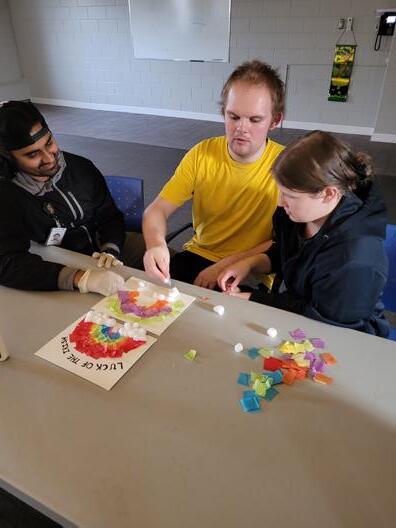


Green was the theme and joy was the feeling at our St. Patrick’s Night. Guests took part in scavenger hunts, crafts, interactive activities, and a cozy movie night. Every moment was filled with creativity and collaboration, giving people the chance to shine in their own way.
Our Spring Fling brought Easter magic to life with pizza, crafts, an Easter egg hunt, and movie. The evening was a celebration of the season and a chance to gather together for lighthearted fun in a welcoming, accessible space.
We welcomed warmer days with our Kick-Off to Summer, featuring karaoke, crafts, water balloon games, and outdoor fun. With bubbles in the air and music all around, this event was a joyful launch into the sunny season, reminding us all how good it feels to just play.
These events aren’t just parties—they’re lifelines. They provide essential social opportunities that many adults with complex behaviours rarely experience. Whether through dancing, crafting, or simply sharing a slice of pizza, CRP events make space for people to feel seen, heard, and valued. At Bethesda, we’re proud to support a community where everyone can celebrate who they are, together.
Up to 94% reduction in time to access Adult Clinical Services since implementing the Choice and Partnership Approach




Bethesda was fortunate to receive additional funds from the Ministry of Children, Community and Social Services to provide further psychology services that assisted people with accessing much
At the heart of everything we do is a simple but powerful purpose: helping people with intellectual and/or developmental disabilities live their fullest, happiest lives. Thanks to the kindness and generosity of our donors, Bethesda Foundation Inc. has been able to make a meaningful difference by completing the following and more!
Over the past year, dozens of families raising children on the autism spectrum received life-changing support, free of charge, thanks to a unique collaboration between dedicated PhD students and Bethesda.
Six students from the first-ever PhD cohort in Applied Behaviour Analysis (ABA) at Brock University spent their year-long practicum working directly with 36 families, offering evidence-based strategies to improve sleep and toileting routines: two daily challenges that can significantly affect the well-being of both children and caregivers.
For many of these families, it was the first time they had access to this kind of tailored, research-driven support. Caregivers were not only guided through personalized interventions but also empowered to implement them at home, helping their children thrive in everyday life.

Before working directly with families, students dove into existing research to design and pilot two caregiver-led programs focused on sleep and toileting. They then delivered these supports over the fall and winter months, building trusting relationships and learning firsthand the value of evidence-based, family-centred care.
Once the sessions concluded, students evaluated the programs, gathering data and family feedback to refine and strengthen future services. Their findings and recommendations were formally presented to Bethesda staff in the spring, setting the stage for future improvements and expanded access.
“We’ve had so much overlap on so many projects between Bethesda and Brock, and many conversations about how to leverage these bright, committed students and their need for training in order to provide more services to the community,” says Dr. Julie Koudys, Associate Professor, Brock University. “With this practicum, we were able to co-create a service Bethesda families wanted that wasn’t yet being offered, and 36 families were able to access those new services this year as a result.”
Bethesda Clinical Supervisor Angela Kirton was closely involved throughout, providing on-site supervision and joining weekly class sessions at Brock. Together with Koudys, she helped guide students not just in their work with families, but in developing the professional skills they’ll carry throughout their careers.
“In addition to learning about the clients in class, we also looked at some skills that would be beneficial for students to learn in general, to support working with a variety of clients and families in different settings in any work that they might do in the future,” says Kirton. “We were able to identify some of those skills and do targeted teaching and role-playing in class, which was a great experience and probably something that’s different from a typical practicum.”
For student Madeline Asaro (MA ’20), who entered the PhD program with previous clinical experience, the project offered a deeper layer of learning.
“From the perspective of someone working in the field, being involved in the program evaluation piece and the revisions of the manual was a really exceptional part of this experience,” says Asaro. “In the future, if I’m in a clinical position where I am designing a new program to be implemented or advocating for its continued use, those are great skills that bridge the clinical and research sides of our field. The practicum pushed me to think about and practice those skills.”
Fellow student Thurka Thillainathan (MA ’23) described the practicum as a “collaborative journey,” with open feedback and support from faculty, supervisors, and peers.
“I knew the four-year practicum experience for the PhD would help me grow as a scientist and practitioner. It’s extremely important, in our field, to bridge research and practice to improve outcomes for the people we work with,” says Thillainathan. “Collaboration between universities and agencies, such as through practicum partnerships, facilitates joint innovation through knowledge exchange to promote evidence-based practice.”
This summer, Koudys and Kirton are reviewing the full body of evaluation data and family feedback to inform next steps for the sleep and toileting programs, ensuring they continue to evolve to meet families’ needs.
In June 2024, Bethesda began a transformative journey, one focused on listening, learning, and healing. At the heart of this effort is a simple, powerful belief: everyone deserves to feel safe, supported, and understood, especially those who have experienced trauma.
From the people we serve and their families, to our dedicated staff and broader community, Bethesda’s TraumaInformed Care (TIC) Initiative is about more than organizational change—it’s about impacting lives for the better
Before diving into frameworks and strategies, our first step was listening. We brought together voices from across the organization: staff, families, caregivers, and people with lived experience, to help shape the direction of our TIC journey.
A key early win? Designing a logo that reflected both our Bethesda identity and TIC values. The process was collaborative, meaningful, and a perfect example of the kind of engagement this initiative is built on.
To keep communication flowing, we launched a monthly TIC newsletter. It’s more than updates, it’s a space where people are seen and heard. Each edition spotlights a staff member and someone with lived experience, sharing stories of growth and hope. We even added a monthly contest inviting ideas and reflections on TIC, making it fun, inclusive, and inspiring.
To drive this initiative, we formed a cross-departmental TIC Leadership Committee. This group leads with empathy and accountability, ensuring that trauma-informed principles are woven into every corner of our work. Their responsibilities range from providing resources and support to analyzing data and collaborating with Senior Leadership.
Early on, we knew that measuring our impact was critical. Using tools from the University at Buffalo’s Organizational Implementation Framework, we surveyed staff using a 40-question assessment and a validated TIC Climate Scale. These baseline results are guiding our path forward, giving us insight into what’s working and where we need to grow.
Launched in June 2024, our Trauma-Informed Care 101 training is an 8-hour course built around five key goals from understanding trauma and its lasting effects to creating personal wellness plans. Informed by best practices and voices with lived experience, the training has already reached nearly 500 staff members, with full participation on track by mid-2025.
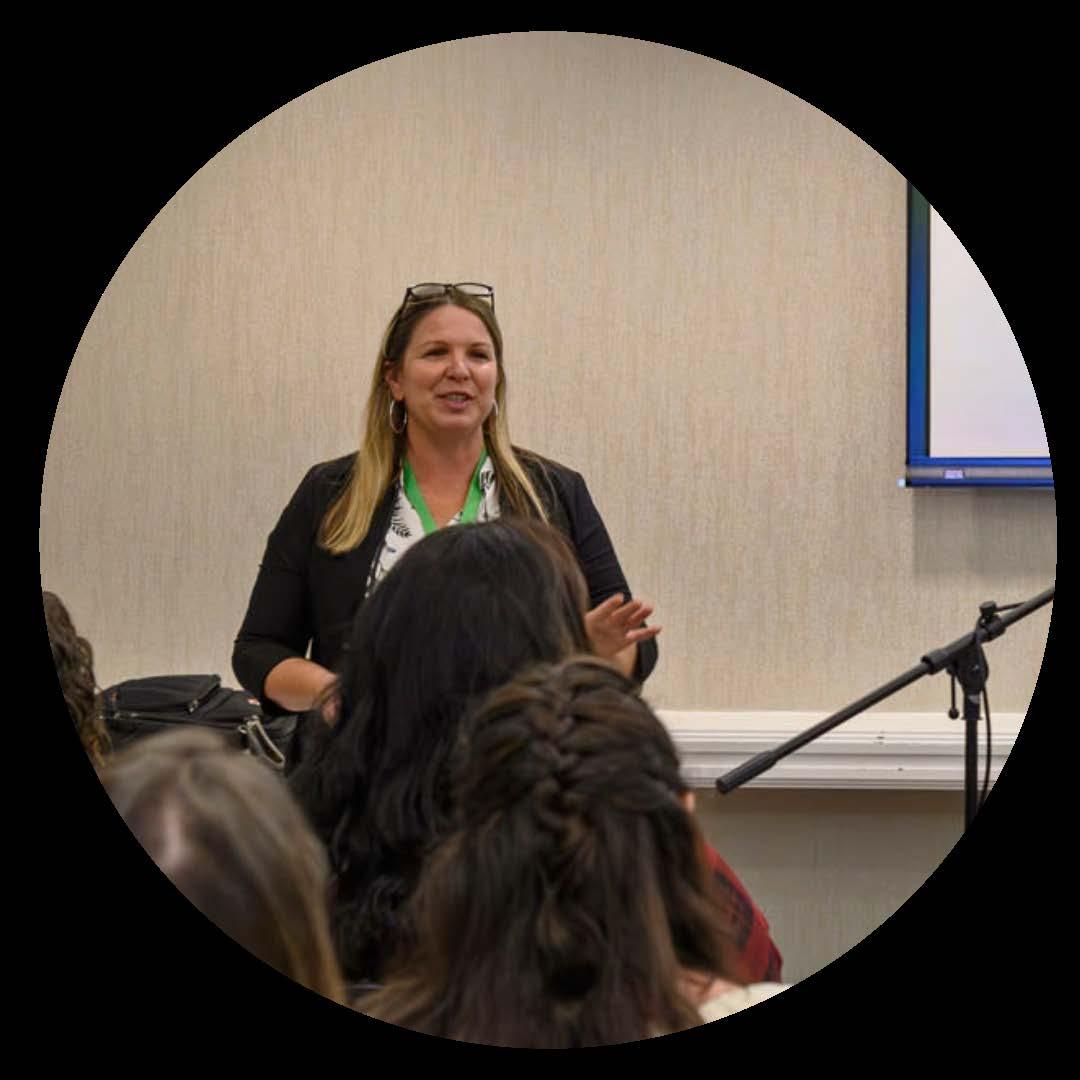
But what’s most important isn’t the numbers— it’s the stories:
“I had read everything in their file and had the previous history. I expressed that they could share anything they wanted me to know in further detail, but they did not need to repeat their story. The sigh and look of relief on that mom’s face was very powerful and it made me feel like I was taking the right steps to be better trauma-informed.”
— Bethesda Staff Member

“Even after completing the first part of the training, I found myself applying what I had learned and noticed a positive difference in my interactions with families.”
— Chloé Charbonneau, Behaviour Therapist
These personal insights remind us that Trauma-Informed Care doesn’t just change how we work, it changes how we connect.
To make sure the training is effective, we use pre- and post-tests, along with open-ended feedback. The results so far show real shifts in understanding and confidence. Several staff even shared that they’ve begun applying what they’ve learned to their personal lives, improving their own well-being.
We believe everyone deserves access to the knowledge and tools of Trauma-Informed Care, including the people we support. That’s why we created Surviving and Thriving, a six-week course tailored for adults with intellectual and developmental disabilities.
Each session is designed with care and clarity, covering topics like building resilience, understanding trauma, and practicing mindfulness. The goal is to equip participants with a coping toolbox while celebrating their strengths and growth.
To deepen our understanding and extend our reach, we partnered with Indiana University on a research project aimed at creating a measurement tool that captures the experiences of people with intellectual and developmental disabilities reciving trauma-informed services.
Led by Dr. John M. Keesler, the tool was finalized in October 2024, and we’re now in the interview phase of the project. The insights from this research will feed into the creation of “Trauma-Informed Care: A Practical Implementation Guide for Disability Services,” currently in development.
With an additional year of funding for our TIC Initiative secured thanks to Bethesda’s Foundation, we’re focused on sustainability. That means putting structures in place to ensure Trauma-Informed Care remains embedded in how we train, support, and lead.
We’re also expanding our impact beyond Bethesda. Our fee-for-service options will include TIC 101 training (with a Train-the-Trainer model) and customized consultation services for other organizations looking to begin their own trauma-informed journey.
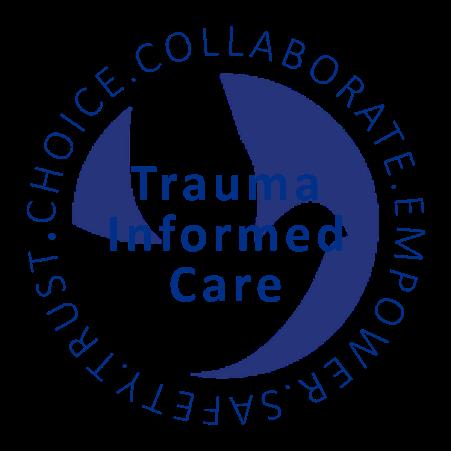
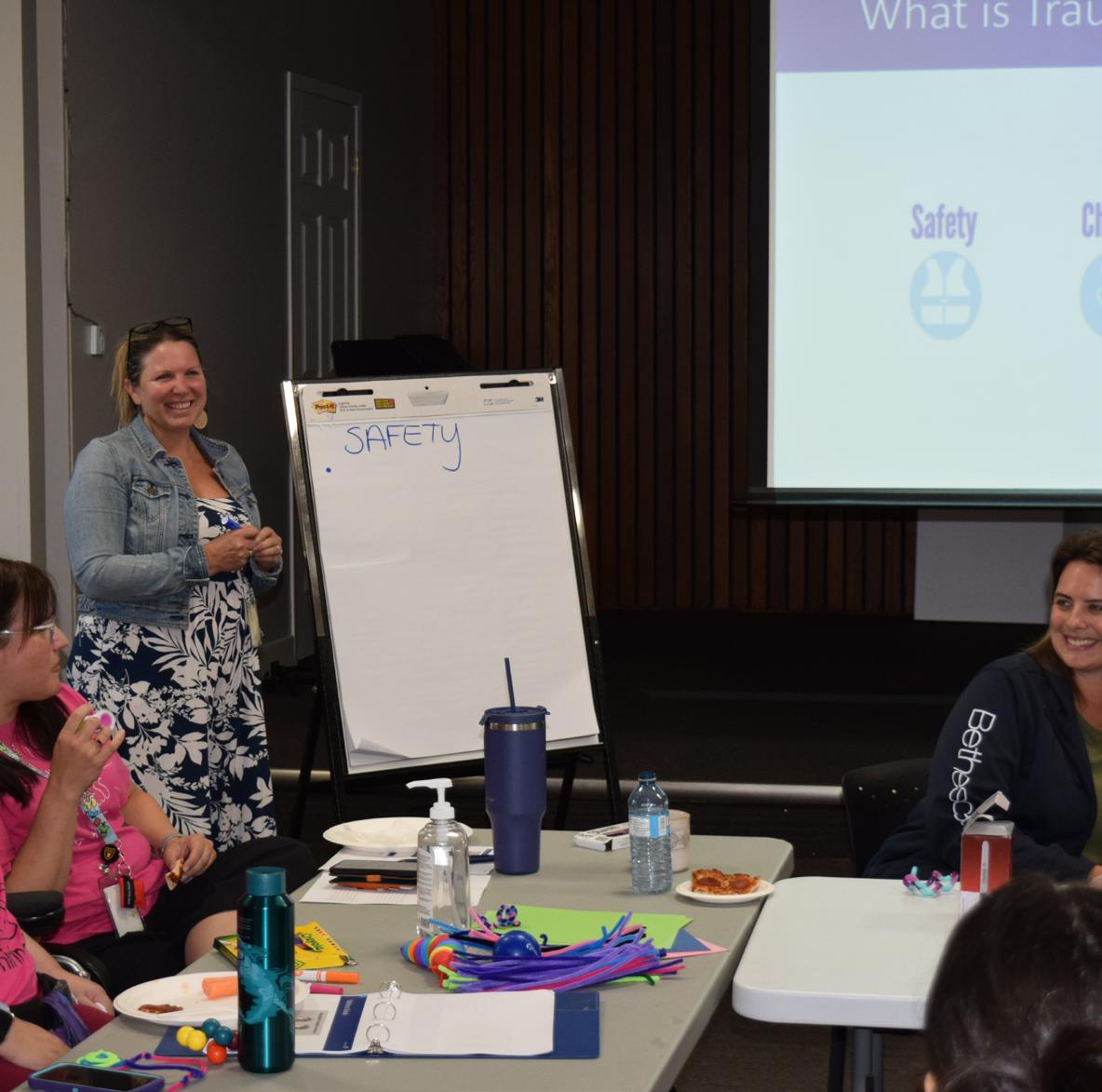
This first year of our Trauma-Informed Care Initiative has been about more than implementing a new framework— it’s been about changing the way we show up for each other.
We’ve seen staff grow in confidence and compassion, families feel heard and understood, and people we support gaining tools to navigate their worlds with greater strength.
And this is just the beginning.
For many families and individuals connected to Bethesda, the holiday season can be a time of both joy and challenge. That’s why events like our annual Christmas Banquet are so meaningful—they create space for laughter, connection, and shared memories in a setting designed just for them.
On December 5, 2024, more than 300 people, friends, family members, and staff, gathered to celebrate the season at Bethesda’s much-loved Christmas Banquet. This year was especially significant, as it marked the first time the banquet was held in person since the pandemic.
The return of this cherished tradition brought a renewed sense of togetherness. Guests enjoyed festive music, delicious holiday treats, warm conversations, and the sparkle of joy that only a visit from Santa can bring.
More than just a celebration, the banquet offered a moment of belonging, a joyful space where people could reconnect, relax, and take in the holiday spirit in a welcoming and inclusive environment.
Thanks to the generous support of Bethesda’s Foundation, this unforgettable afternoon was made possible. It’s through moments like these that we’re reminded of the power of community and the importance of creating spaces where everyone feels they belong.

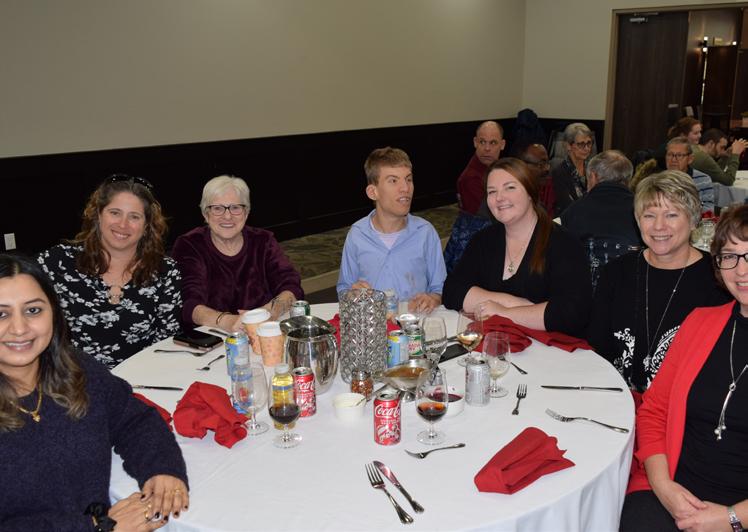
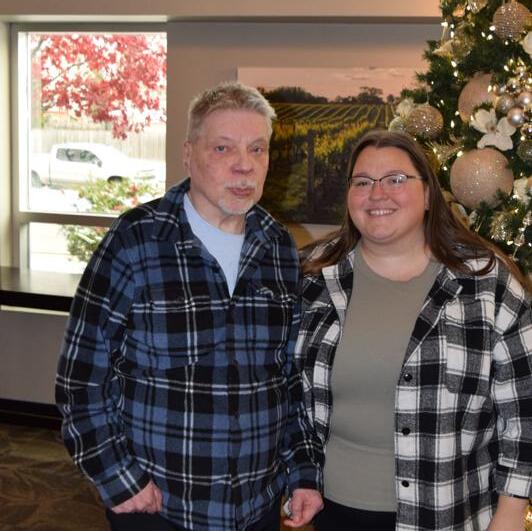
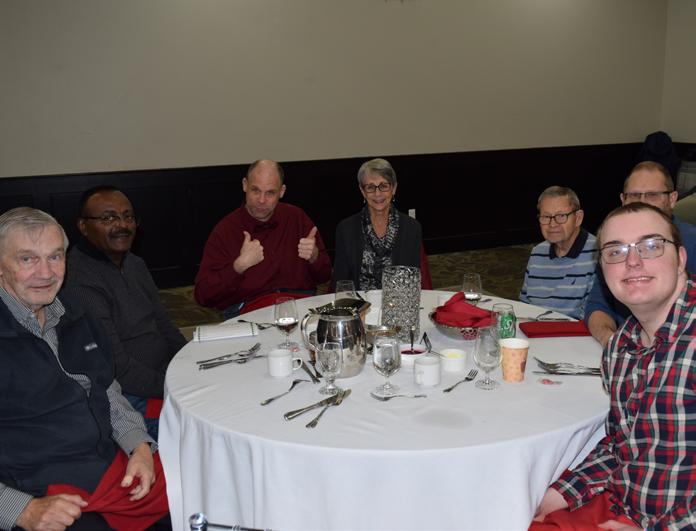
Thank you to the incredible donors and sponsors whose generosity and support empowered people we serve to live their best lives.
As we shared with you in last years’ annual report, we tried to take a different approach to fundraising in 20242025. We did this by building and strengthening our relationships throughout our community by attending events, hosting seminars and collaborating with our community partners.
Below are the organizations who generously partnered with us to help fulfill the unmet needs of those we support. Just as they have supported us, we encourage you to support them.









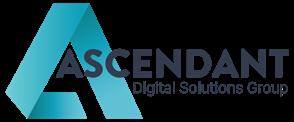






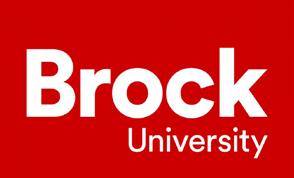


$20,000 to $24,000 $8,000 to $19,999 $5,000 to $7,999 $2,500 to $4,999
• Meridian Credit Union (Year 1 of 3 year pledge)
• Niagara Region – Andy Koschok Memorial Golf Tournament
• Bayview Flowers Ltd.
• Mountainview Homes (Niagara) Ltd.
• Richard King
• C. R. Smith Financial Services Inc.
• Ascendant Digital Solutions Group
• Brock University - Financial and Admin Services
• Buckrell Family Foundation
• Desjardins Insurance
• Lions Club of Port Dalhousie-Bingo
• Michael’s Carpet and Flooring (Niagara) Ltd.
• Parker Hannifin Canada
• Robert and Judy Mansfield
• T.R. Hinan Contractors Inc.
$1,000 to $2,499
• Alice L Murray
• Arthur J. Gallagher Canada Ltd.
• Brand Blvd
• Canada Life
• Cara Feldman
• Cheryl Tyndall
• City of Niagara Falls
• Coby VanderZwaag
• Dave Van Am Inc.
• Doug Peters
• Florence Molnar
• Hank Unrau
• Jody Beamer
• McMillan Drainage Solultions Inc.
• Paul McGowan
• Ruber Plumbing & Heating Inc.
• Ted R Podbielski
• Town of Lincoln
• William R. Jackson
$500 to $999
• AMS Parents Guild
• Brian Anthony Herten-Greaven
• Chris Barnatt
• Heidi Jackson
• Howard Peters
• Janet Schaafsma
• John Block
• Michelle Keilhauer
• Pelham Community Church
• Stamford Lions Club
• Walter David Esau
• Abigail Dinning
• Alberto and Margherita DiPietro
• Althorp Montessori School Inc.
• Andon Osborne
• Andrew Staller
• Anna Berlingeri
• Anne Roscoe
• Anonymous
• Bonnie Sparling
• Brian McEntegart
• Calvin Jessome
• Carmela Roque
• Caroline Warkentin
• Cheryl Umetsu
• Christiane A Kavazanjian
• Christiane Esau
• Clarence & Ruth Braun
• David Boult
• Dee Reid
• Donald Bryan Redman
• Donna Baker
• Edna Beltran Florido
• Edna Florido
• Elisa Gulla, Orsini
• Elizabeth Boyle
• Genetics Labs
• George Davidson
• Gillian Dunkley
• Gloria and Douglas Francis
• Gloria Lynn Faber
• Grace and Gordon Smith
• Gregory and Marilyn Richards
• Hans Schnack
• Harry Artinian, Jr
• Helen Hartley
• Jacqueline Goldin
• James Bradley
• Jane Swackhammer
• Janet Zeppa
• Janette Adams
• Janice and Barry Knight
• Janine Williams
• Joan Guay
• Joanne Gagne
• John Haan
• John Lefurgey
$499 and under
• John MacPhail
• John Mallett
• John Rapp
• Joyce Nickel
• Joyce Schimpky
• Julia Climenhaga
• Julie Schram
• Laura Cuthbertson
• Laurie Ann Douma
• Linda Merifield
• Linda White
• Liz Froese
• Lorraine Dunkley
• Lucas Goertz
• Margaret Lockhart
• Margaret McCarthy
• Marian Loewen
• Marilyn Leblanc
• Marjorie Rossetto
• Marlene Bourdeau
• Marlene Moretti
• Marlene Ring
• Martin Nye
• Martine Paroyan
• Mary Louise Duncan
• Mary Tennant
• Mary Umetsu
• Melissa Sullivan
• Michael Glavic
• My Charity Fund
• My Tribute Gift
• Nancie Grant
• Nancy Leona Taylor
• PayPal Giving Fund Canada
• Peter Boychuk
• Rick & Maie Sawatsky
• Rita & Greg Batts
• Robert Smart
• Roger Farnum
• Rosemarie Schappert
• Ross and Ruth Ann Munro
• Ruth Cook
• Sandra Pagett
• Sharon and Robert Long
• Sherrie Vittie
• United Way Niagara
• Wayne O’Connell
• Will & Candace Walker
This year, we’ve cherished connecting with our community: meeting people at events, hosting financial planning seminars, and partnering with local groups. At Bethesda, these connections inspire us to keep empowering the people we serve.
We’re excited to continue deepening our connections throughout the community. If you’d like to explore ways to support Bethesda’s mission, please get in touch with our Manager of Community Relations. We’d love to hear from you!


Would you like to support us in furthering Mission to empower people to live their best lives?

Over the last few years, Bethesda’s Gardening Program has flourished with heart and determination despite challenges from pests and unpredictable weather. This program is much more than cultivating plants—it is cultivating lives.
Each season, participants living with developmental and intellectual disabilities have experienced the joy and empowerment that comes from planting seeds, nurturing growth, and harvesting fresh produce. Their efforts have yielded hundreds of pounds of fresh vegetables, generously donated to Community Care of West Niagara, transforming gardening into a powerful act of giving back.
At the core of this program is the opportunity for participants—often a vulnerable and overlooked population—to develop meaningful life skills, gain a sense of ownership, and build self-confidence. Through hands-on activities, individuals learn about responsibility, teamwork, and the cycles of nature, all while fostering friendships and social connections. This sense of purpose and belonging uplifts their well-being and breaks down barriers between people and their communities.
Bethesda was thrilled to announce a transformative new chapter with a $75,000 donation from Meridian Credit Union that supported the construction of a new greenhouse. This gift creates a vital space designed specifically to nurture the personal growth, creativity, and social engagement of adults with developmental disabilities. The greenhouse will extend the gardening season, enabling year-round learning and participation in an inspiring, nature-filled environment.
Paul McGowan, Bethesda’s CEO, shared, “We are incredibly thankful to Meridian for their generous grant toward Bethesda’s greenhouse initiative. Their support goes beyond just funding—it’s a true testament to the power of collaboration and their corporate vision of providing a better future for all. This partnership will enable us to make meaningful progress, and we are excited to work together toward a shared vision of positive impact in our community.”
The new greenhouse amplifies the Gardening Program’s impact by offering a therapeutic and recreational sanctuary where participants thrive. Beyond growing vegetables, participants cultivate essential skills such as planning, problem-solving, and communication. These experiences foster independence and enrich their quality of life.
Moreover, the act of donating their harvests to Community Care of West Niagara strengthens participants’ connection to their community, creating a meaningful cycle of giving. It sends a powerful message: everyone has something valuable to contribute, and everyone deserves to be part of a caring, inclusive society.
A recent garden tour exchange with United Way’s garden team further inspired Bethesda’s gardeners, fostering a spirit of shared learning and community. This collaboration highlights the broader movement toward inclusive and supportive environments where individuals of all abilities can flourish.
Mila Schneider, Social Impact Specialist at Meridian Credit Union, reflects, “At Meridian, we believe in fostering inclusive, sustainable communities where individuals have the opportunity to grow and thrive. Bethesda’s Greenhouse Project is a perfect example of an initiative that makes a tangible difference and we are excited to see the positive impact in the community for years to come.”
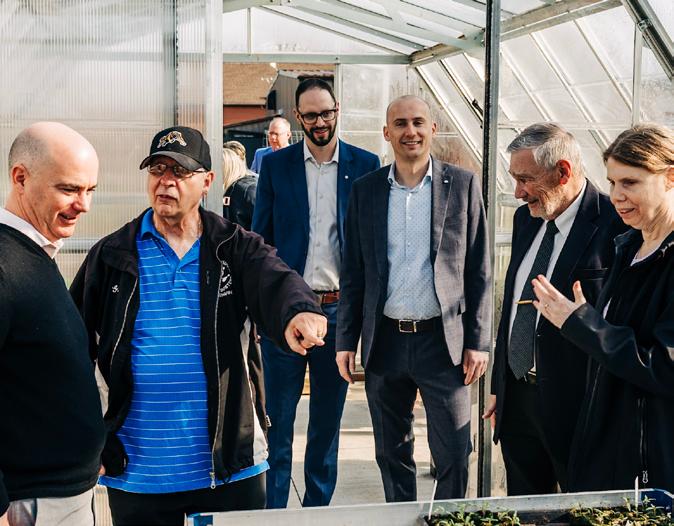


As Bethesda and Meridian Credit Union continue this partnership, the Gardening Program looks forward to cultivating even greater opportunities for personal growth, community engagement, and sustainability.
With new tools and renewed spirit, our gardeners are ready to bloom brighter than ever—growing not only fresh produce but confidence, skills, and a shared sense of purpose.

For years, Brock University and Bethesda have quietly worked side by side to support people with intellectual and/or developmental disabilities in the Niagara community. Their collaboration has led to meaningful projects, innovative research, and hands-on learning that have touched many lives. Now, on January 24, 2025, they took a significant step forward by signing a formal partnership agreement at Bethesda’s Niagara Family Centre. This milestone promises even greater impact for the people they serve.
The formalization of this partnership builds on a history of shared goals and accomplishments. It brings together Brock’s academic strength and Bethesda’s community expertise to create new opportunities that benefit individuals and families throughout the Niagara region.
Lesley Rigg, President and Vice-Chancellor of Brock University, spoke passionately about the power of community collaboration.
“As a community-focused university, we know that it is through relationships with organizations like Bethesda that we truly can transform people and reimagine the future,” Rigg said. “Our partnership with Bethesda allows us to shape the future for this sector together, through research, discovery and knowledge mobilization.”
Bethesda’s CEO, Paul McGowan, echoed this sentiment, calling the partnership “the culmination of years of working together.”
“Our two organizations share many strategic goals from advancing research and fostering inclusive and supportive environments to building deep and meaningful relationships with our communities,” McGowan explained.

One shining example of the collaboration is the PECS®perts initiative, launched in 2020. This innovative program, developed together by Brock’s Department of Applied Disability Studies, Bethesda, and Pyramid Educational Consultants, is focused on creating innovative teaching tools for children and youth with autism.
Julie Koudys, Associate Professor at Brock’s Faculty of Social Sciences and a key leader in the PECS®perts initiative, highlights how formalizing their collaboration strengthens the connection between research and practice.
“This partnership formalizes years of meaningful collaboration between Brock and Bethesda, creating new opportunities to bridge research and practice,” Koudys said. “By working together, we’re not only advancing knowledge but also making a tangible difference in the lives of individuals with intellectual and developmental disabilities and their families.”
Beyond research, the partnership provides valuable learning experiences for Brock students in fields like Education, Nursing, Psychology, and Business, offering them exposure to working within a community services organization and the chance to contribute meaningfully to Bethesda’s inclusive services.
Plans are underway for exciting new projects, including research that will explore the benefits of recreational activities for people with developmental disabilities, and expanded training opportunities to support Bethesda’s staff.
In 2023, this collaboration also led to the creation of the Bethesda-Brian H. Davies Bursary. This bursary provides a $5,000 annual award that supports students enrolled in Brock’s Masters of Applied Disability Studies program.
McGowan noted many of Bethesda’s employees are Brock graduates, reflecting the strong connection between the two institutions.
“Not only is this due to geography but because of the calibre of Brock graduates,” McGowan said.
The signing event was more than a formality, it was a celebration attended by community leaders, government officials, and staff, all recognizing the potential for lasting, positive change throughout Niagara.
“This is an inspiring example of how research, when applied effectively, can empower communities and improve everyday lives,” Koudys reflected.
Together, Brock University and Bethesda are charting a path forward. One where collaboration turns ideas into action, research into support, and partnership into progress for all.

For families and caregivers of people with developmental and intellectual disabilities, planning for the future can often feel overwhelming and uncertain. Understanding the financial and legal steps needed to secure their loved ones’ wellbeing is crucial but this information isn’t always easy to find.
In November 2024, Bethesda was proud to partner with CR Smith Financial and Advisor Brandon Currie to host two meaningful workshops designed to fill this important gap. Held at our Fly Road location in Vineland and Schmon Parkway offices in Thorold, these sessions created welcoming spaces where parents and caregivers could gain clarity and confidence around financial planning specific to their unique situations.
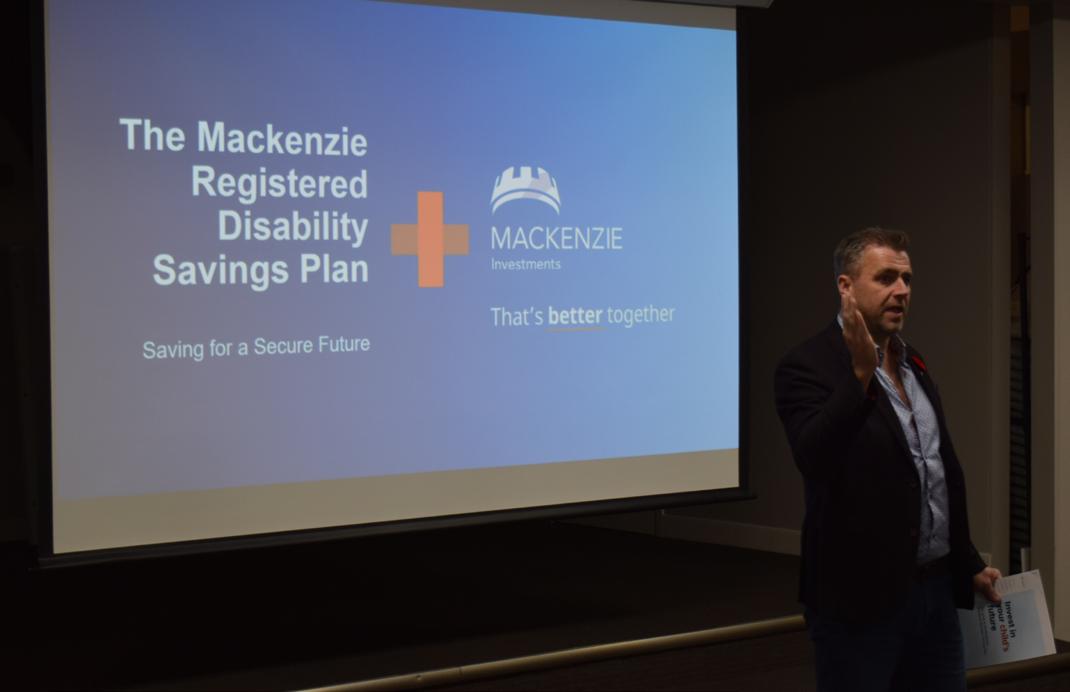
Brandon Currie brought expert insight and compassion to each workshop, helping families navigate complex topics with approachable explanations and practical advice. Attendees had the chance to ask questions and engage in open conversations, walking away equipped with the tools they need to make informed decisions about their loved ones’ futures.

The positive feedback from families was overwhelming. Many families expressed deep appreciation for the opportunity to access this vital information, which can often feel out of reach. We are truly thankful to CR Smith Financial for their generosity and commitment to our community, and we look forward to continuing this partnership to provide more workshops and support in the future.
Every summer, a powerful legacy brings the Niagara community together. Golfers, sponsors, volunteers, and local supporters gather not just for a day of sport, but to create lasting impact in the lives of children, youth, and families across the region.
Since 2015, the Andy Koschok Memorial Niagara Region Golf Tournament has grown into a cherished tradition. More than just a golf game, it’s a celebration of community spirit and a tribute to Andy Koschok’s memory—one that continues to drive meaningful change.
Thanks to the generosity of tournament organizers, sponsors, and participants, and the steadfast support of Niagara Region, last year’s event raised over $60,000, benefitting both Bethesda and Community Crew.
For Bethesda, these contributions are far more than financial, they represent real opportunities for children, youth, and families with diverse abilities.


Over the years, the tournament has supported Bethesda through eight incredible events, raising a total of $200,515.41 for us. These funds have helped transform lives through several key initiatives:
Contributions supported the construction of our 27,000 sq. ft. Niagara Family Centre, home to Bethesda’s Children and Youth Services. This state-of-the-art facility has helped us serve more families, closer to home.
Donations helped fund 61 psychological assessments for children and youth waiting for services. These assessments are often the critical first step in getting young people the supports they need faster.
These donations made it possible to offer 140 respite day camp spots for children and youth over the winter break, providing families with essential support and children with inclusive, enriching experiences during the holidays.
The impact of the Andy Koschok Memorial Golf Tournament is seen in every milestone reached, every family supported, and every child given the chance to thrive. Andy’s legacy lives on in the collective generosity of those who continue to support this remarkable event.
To all those who have organized, donated, sponsored, and participated: thank you. Your commitment is helping build a stronger, more inclusive Niagara for everyone.
Financial Highlights 2024-2025 (Unaudited)*
$3,872,467

$10,752,758**
$6,257,086
$32,771,151
Adult Services
Adult Clinical Services
Children and Youth Services
Administration
*Audited Statements are available on Bethesda’s website.
**Adult Services and Children and Youth Services includes all revenue sources.
At Bethesda, everything we do is rooted in the belief that every child, youth, and adult with an intellectual and/or developmental disability deserves the opportunity to thrive. Every day, we see the difference that compassionate support, tailored services, and strong partnerships can make—not just for the individuals we serve, but for their families as well.
That’s why we are deeply grateful for the continued support of the provincial government and the Ministry of Children, Community and Social Services. Their partnership plays a vital role in helping us bring our Vision to life, one where people of all abilities are inspired, encouraged, and empowered to live their best lives.
In 2024–2025, Bethesda was fortunate to receive additional support through the Ontario Autism Program Workforce Capacity Grant. This special funding allowed us to strengthen Children and Youth Services in meaningful ways and share our expertise across the province, ultimately enhancing the care and support provided to families as they navigate their autism journey.

Imagine being a caregiver to a child with autism or other neurodevelopmental differences, someone who pours their heart into every moment of care but rarely has a chance to rest or recharge. Now, imagine the difference it makes when a trained support worker steps in to provide purposeful, therapeutic respite. Not just time off, but time that helps children grow, aligns with clinical goals, and offers families peace of mind.
That’s the kind of impact we’ve seen through the Therapeutic Respite Training Series (TRTS). A program designed not just to teach, but to transform.
Before TRTS, many respite providers had the heart for this work but not always the tools. That’s where Bethesda came in. With an interdisciplinary team of Board Certified Behaviour Analysts, Speech and Language Pathologists, Occupational Therapists, Social Workers, and experienced Therapeutic Respite Staff, Bethesda developed a comprehensive training series led by Registered Behaviour Analysts (Ont.).
This wasn’t just about theory. Each module offered hands-on practice, helpful takeaways, and practical resources. Supervisors were also included in training and follow-up meetings to support implementation.
The TRTS reached far and wide, particularly in areas where access to resources is often limited:
• 8 organizations serving Indigenous and northern communities participated
• 7 Francophone individuals benefited directly
• 8 organizations supporting rural communities joined the sessions
These numbers reflect a growing movement to ensure that all families, regardless of location or background, can access high-quality therapeutic respite.
To ensure the training made a difference, participants completed assessments before and after the sessions. The results speak volumes:
• Relative Improvement: +45.5% over the pretraining average
Participants left with more than just information, they gained practical, applicable skills that elevated their ability to support children and families effectively.
Program managers were also surveyed to assess how their teams were impacted
• Pre-training manager confidence: 4.2 out of 5
• Post-training manager confidence: 4.6 out of 5
• Increase in trust and confidence in staff: +0.4 points
These numbers reflect a growing confidence in the ability of staff to align respite services with clinical goals, ultimately delivering stronger, more coordinated care.
The Therapeutic Respite Training Series has not only strengthened individual skillsets, it’s supported organizations in delivering respite that aligns with clinical goals, improves outcomes, and provides meaningful rest for families.
• Pre-training confidence: 4.2 out of 5
• Post-training confidence: 4.7 out of 5
• Increase in self-confidence: +0.5 points
Even those who began with relatively high confidence saw a meaningful boost; an important factor when working in high-stakes, emotionally demanding roles.
Training facilitators, ranging from Behaviour Therapists to Clinical Supervisors, reported high levels of engagement and satisfaction:
• The format balanced instruction, video, text, and discussion.
• It played to staff strengths and encouraged dynamic participation.
• There was strong interest in exploring ways to make TRTS an ongoing offering, possibly as a purchasable program for other organizations.
By investing in the people who care for our most vulnerable youth, we’re creating a ripple effect that touches homes, communities, and futures.
At Bethesda, we believe in the power of purposeful respite and thanks to this collaborative effort, that power is now in more hands than ever.

This past December, people supported by Bethesda had the chance to share their daily experiences and achievements with a very special guest—the Honourable Michael Parsa, Minister of Children, Community and Social Services.
During his visit, Minister Parsa met with program participants, staff, and leaders who are dedicated to creating inclusive, supportive environments where people of all abilities can thrive. From vibrant activities at the Schmon Day Program to the warm, welcoming atmosphere of one of Bethesda’s community homes, the visit showcased the real-life impact of high-quality, person-centered care.

Minister Parsa was welcomed by Bethesda’s CEO, Paul McGowan, Director of Adult Services, Shelley Mercer, staff and people supported who proudly shared the stories and successes that unfold every day across Bethesda’s programs.
“We were privileged to welcome Minister Parsa to Bethesda today. Our conversation focused on the exceptional work being done at Bethesda and the strategies to better advocate for those we serve, ensuring they have access to and receive the crucial support they need. We are grateful for the Minister and his team for their visit and appreciate their continued dedication to supporting our community at the provincial level.”

This summer, Bethesda had the honour of welcoming several provincial leaders to visit our homes and properties, places that aren’t just buildings, but vibrant communities where people with developmental disabilities live, grow, and thrive. These visits were about more than just tours. They were opportunities to share the stories of the people we support and to advocate for a stronger, more inclusive Developmental Services sector in Ontario.
Nestled on 90 acres in Vineland, Bethesda’s Fly Road property has been part of our story since 1937, when our founders, the Wiebe family, first purchased the farmland that would become the heart of Bethesda’s legacy.
On May 31, 2024, Bethesda welcomed MPP Sam Oosterhoff for a special visit to this historic site. CEO Paul McGowan and members of the leadership team were proud to walk MPP Oosterhoff through the property, sharing stories of Bethesda’s evolution and the profound impact our services have had over the decades.
CEO Paul McGowan reflected, “It was a pleasure to tour MPP Sam Oosterhoff and inform him of Bethesda’s many successes and highlight some of the challenges experienced by Bethesda and the Developmental Sector as a whole; MPP Sam Oosterhoff was very knowledgeable of the sector and the challenges Developmental Services continues to face.”


Home to five people supported by Bethesda, our Crestdale residence in St. Catharines was alive with excitement as we welcomed MPP Jennie Stevens for a visit on July 9, 2024. The residents themselves helped lead the tour, proudly showing MPP Stevens around their home and sharing their experiences.

CEO Paul McGowan, Director of Adult Services Shelley Mercer, and other team members joined in highlighting the care, connection, and community that defines Crestdale.
“We were pleased to host MPP Stevens at Crestdale this morning,” said McGowan. “Our discussions focused on highlighting the great work we do as an organization, advocating for the individuals we support and prioritizing the most vulnerable in our community to ensure they receive the necessary supports. At Bethesda, we value the opportunity to connect with community supporters and look forward to collaborating with MPP Stevens in the future and thank her for her support.”
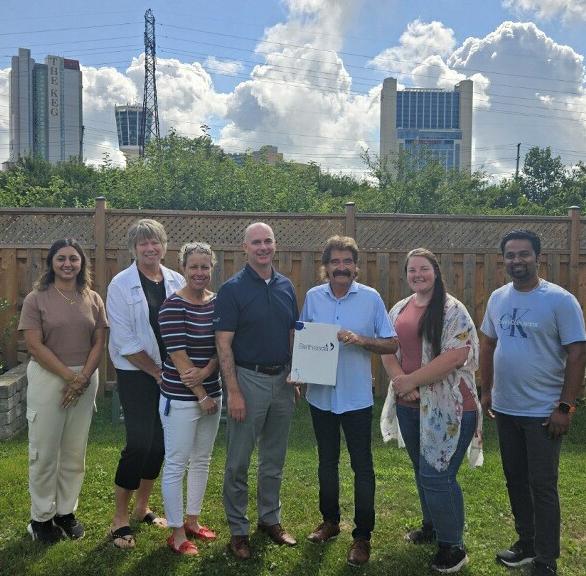
On July 18, 2024 MPP Wayne Gates visited Bethesda’s Sunnylea property in Niagara Falls, home to three individuals we proudly support. The visit provided an opportunity to share how personalized care and dedicated staff make Sunnylea a warm, supportive environment.
Bethesda’s leadership team, Paul McGowan, Shelley Mercer, and others, welcomed MPP Gates and shared insights into the daily lives of the people we serve and the broader systemic challenges affecting the Developmental Services sector.
Bethesda’s CEO Paul McGowan shared, “We were honored to host MPP Gates at Sunnylea today. Our discussions highlighted Bethesda’s outstanding work as an organization and explored strategies to further advocate for the individuals we serve, ensuring they receive the vital support and assistance they need. We appreciate MPP Gates and his team’s ongoing commitment to supporting our community at the provincial level.”
Bethesda remains committed to partnering with local and provincial leaders to ensure that people with developmental disabilities have every opportunity to live their best lives. We are grateful to MPPs Oosterhoff, Stevens, and Gates for their time, attention, and advocacy. We look forward to continuing this important work together.
People are at the heart of Bethesda – the people we support, the dedicated staff who walk alongside them, and the volunteers who give so generously of their time.
At Bethesda, we’ve always believed that when we invest in our people, through meaningful connection, ongoing learning, and professional growth, we create the foundation for something greater. It’s this commitment that allows us to offer holistic, innovative, and high-quality supports and services, while also being a workplace where people feel valued, inspired, and proud to belong.
In late February 2025, the Pavilion at Club Roma in St. Catharines buzzed with energy, empathy, and insight as Bethesda hosted its annual Developmental Support Worker (DSW) Conference. Over two meaningful days, February 26 and 27, 79 frontline staff gathered to do something truly powerful: step into the shoes of the people they support.
This year’s theme focused on deepening understanding through lived experience. Through interactive simulations, personal storytelling, and reflection, staff were offered not just information but transformation.
To begin, Bethesda CEO Paul McGowan welcomed attendees and set the tone for a heartfelt two days. Shelley Mercer, Director of Adult Services, followed with a moving presentation on The History of Bethesda, filled with rare photographs and stories that captured how the organization’s deep-rooted family values continue to guide its mission. Staff learned how the Wiebe family, Bethesda’s founders, opened their home, and their hearts, to people with developmental disabilities, setting a standard of care that remains the organization’s cornerstone.
The impact on staff was clear. Nearly every participant walked away with a renewed sense of pride and belonging:

“I love to see the growth in Bethesda and how we still have the values that go back to our roots.”

“The word family. The Wiebe’s had people move in with them to help them and considered them family.”
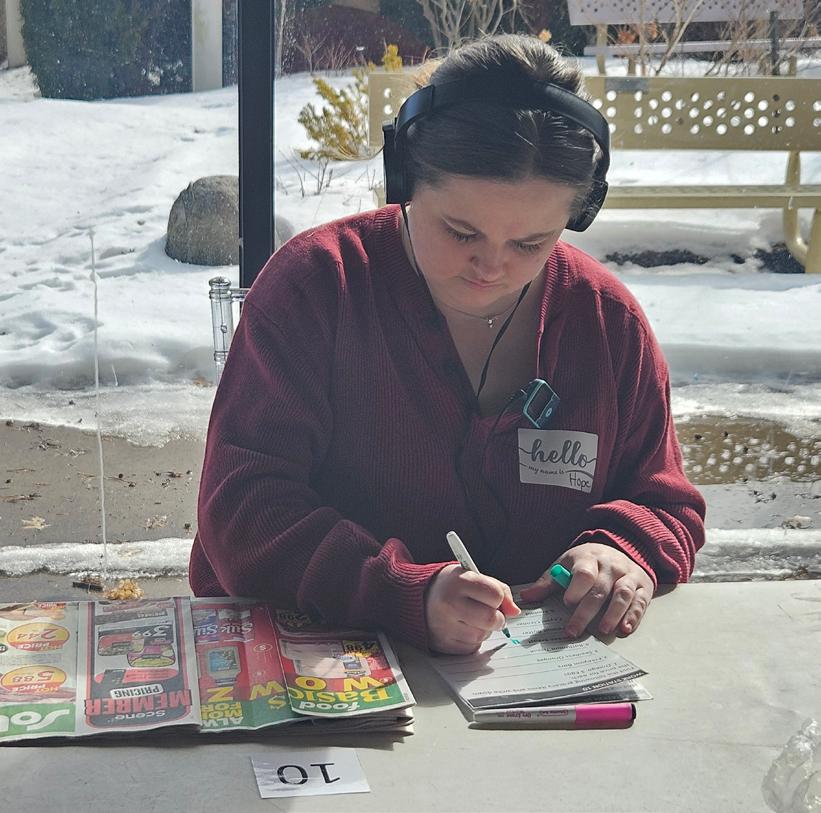
Empathy became real in the Dementia Experience and Hearing Voices Simulation facilitated by Niagara College and Bethesda Adult Services Managers Sandie Narsansky, Carrie Adewumi, and Bev Boden. These sessions gave staff a chance to feel what it might be like to live with dementia or schizophrenia. Participants described these exercises as “emotional,” “unsettling,” and “eye-opening.”
More than just role play, these experiences helped staff better understand the patience, compassion, and communication needed to support people through overwhelming sensory and cognitive challenges.
“I loved this. It made me feel things and emotions I’ve never felt. It helps put it into perspective for me. I feel very privileged to have been able to participate in this.”
“I work with people who hear voices so it gives me a better understanding of [their] daily struggles and it can help me better serve them in the future.”
In the Geriatric Suit and Aging Experience, participants donned suits that mimicked the physical challenges of aging. Led by Shelley Mercer and Adult Services Manager Janine Williams, this simulation highlighted how something as simple as walking across a room can become an exhausting task with age.
Staff reflected on the importance of slowing down, offering patience, and recognizing that many of those they support face additional barriers as they age.
Social Worker Janine Costello’s Emotional Regulation session reminded attendees that to support others well, they must also care for themselves. The concept of the Window of Tolerance helped staff reflect on how emotional balance impacts their work and the wellbeing of the people they support.
“… a developmental disability only adds to the frustration and confusion that comes with aging.”
“My actions and mood can … will [affect] the people I support.”

“I learned that each individual has their own threshold—we all tolerate things differently.”

One of the most impactful sessions came from the New Vision Advocates, a self-advocacy group based in London, Ontario. Joining virtually, they delivered The Power of Words, a moving presentation on how language shapes perceptions and relationships.
Staff were deeply affected by hearing directly from people with developmental disabilities. Stories of overcoming discrimination, fighting for visibility, and the importance of respectful language sparked powerful reflection.

“I have heard this presentation before and it still impacted me hearing it again. I need to remember that they are people and not individuals”

“That is the first time I experienced people with disabilities talking and teaching staff how they want to be treated.”
To close the day, Janine Costello led The Art of Caring, a mindfulness-based workshop that used art to reflect on compassion and inclusion. Staff took part in a creative activity that reminded them how even small acts of kindness ripple outward.


“The single flower example given was a great representation to help me picture small things becoming more.”
“Love to see how one act of kindness can create a chain reaction.”
With an average score of 96 out of 100, the feedback from the conference speaks volumes. While there were a few suggestions the overwhelming response was positive.
At its heart, this conference wasn’t just about staff development, it was about people. The people Bethesda supports, and the people doing the supporting. It was about listening more closely, seeing more clearly, and walking a little more gently beside one another.
It reminded everyone present that empathy is a skill, compassion is a practice, and care is an art. And when we invest in understanding others, we elevate the standard of care we can offer not just professionally, but humanly.
Over the past couple of years, Bethesda has witnessed something truly powerful, our leadership staff coming together, learning, growing, and ultimately driving meaningful change across the organization. The impact of this journey is already being felt by people throughout our community.
This transformation began with a partnership between Bethesda’s Senior Leadership and Brock University’s Professional and Continuing Studies department and was centered on leadership development. In the first year, the focus was on core leadership principles. The second year built on that foundation, encouraging leaders to apply their learning to challenges faced by the organization through what we called Action Learning Projects (ALPs).
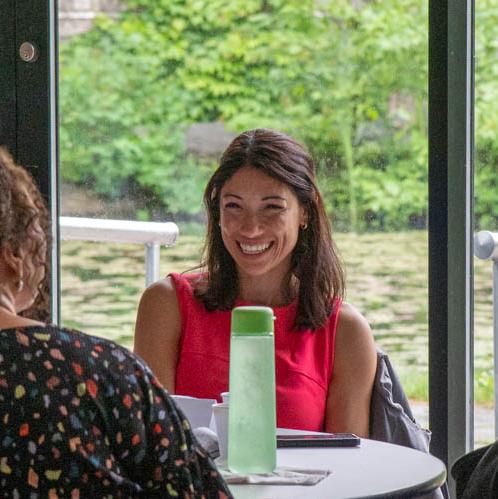
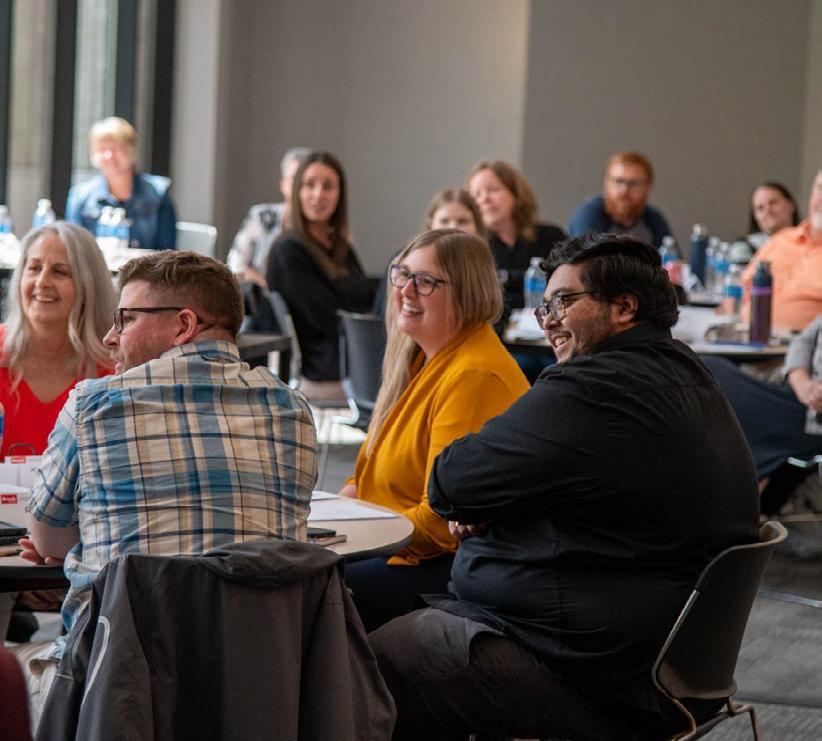

The ALP initiative wasn’t just a theoretical exercise, it brought together staff from across all for four of the organization’s operations: Administration, Adult Clinical Services, Adult Services, and Children and Youth Services. These cross-functional teams tackled real organizational challenges, leveraging their unique perspectives and expertise.
The topics they explored included:
• Organizational Training and Development
• Onboarding and Retention
• Recruitment
• Promoting Services
• Organizational Collaboration
• Support Teams
• Equity, Diversity, and Inclusion

Each team worked diligently to assess these challenges, listen to feedback, and develop practical, actionable recommendations.
We’re excited to share that many of the recommendations from the Action Learning Projects are already being put into motion with more to come. We remain deeply committed to seeing this work through. These are more than just operational improvements, they are a direct reflection of our values in action: collaboration, learning, and a commitment to continuous growth.
In 2024–2025, Bethesda introduced a year-round, training program tailored for Adult Services teams. The goal? To continually grow the skills and confidence of staff so they can provide the best possible support to people with intellectual and/or developmental disabilities.
Before launching any new training programs, a meaningful first step was taken. Sandie Narsansky, Manager of Adult Services and the lead for the training program, met with each Manager to understand the unique needs of their teams.
Starting January 2025, new Supported Living staff at Bethesda began their journey with a deeper understanding of their role and purpose. After their initial New Hire Orientation, they attend a dedicated training session that focuses on the core responsibilities of Direct Support Workers (DSWs).
These sessions go beyond checklists. They’re about helping new staff connect the dots between their daily work and Bethesda’s Mission, Vision, and Values. It’s about setting clear expectations and inspiring a sense of purpose from day one.
Safety Care classes include a dedicated, focused session that covers essential areas including documentation, medication records, incident reporting, and updates to the Seclusion Time-Out process. By building in these practical elements, staff are better equipped to ensure safe, consistent, and person-centred care.
Further training topics include:
• Person-Centred Approaches
• Team Development and Dynamics
• Core Competencies
• Resource Management
• Resilience
• Effective Documentation
• Swallowing and Nutrition Safety
• Understanding Passport Funding
• Decision-Making and Advocacy
• Navigating Change
• Positive and Proactive Strategies
• Difficult Conversations
• Applying ABA in Daily Practice
• Respecting Diversity
• Building Critical Thinking Skills

Each session is designed not just to inform, but to empower. Staff leave with tools they can use and a stronger connection to the people they support.
Staff and the people they support gather throughout the year for an ice cream, cup of coffee, or BBQ and for something deeper: connection, community, and purpose.
These simple get-togethers offer more than just a break in the day. They are a chance to advocate for causes that matter, celebrate small joys, and strengthen the bonds that make a difference in everyday lives.







As the holiday season approached in December 2024, the spirit of generosity was alive and well among the Bethesda staff. Staff rallied to support those in need and the results were truly heartwarming.
DuringourGivingChallenge,115staff members came together with one powerful goal: to give back in meaningful ways, and the response was overwhelming. Together, we donated 789 pounds of food; enough to fill pantry shelves and dinner plates for countless local families facing food insecurity. These donations directly supported Community Care of West Niagara, helping to lessen the burden of people experiencing food insecurities in our community during the holidays.
Our team also rolled up their sleeves, quite literally, to make life saving plasma donations, potentially saving up to 30 lives through Canadian Blood Services. Each donation carried the hope of healing and a second chance for someone in critical need.
This Giving Challenge was more than just numbers, it was about people helping people. It was about showing up, with compassion and purpose, for those who need us most. And it was all made possible thanks to the incredible spirit of our staff.

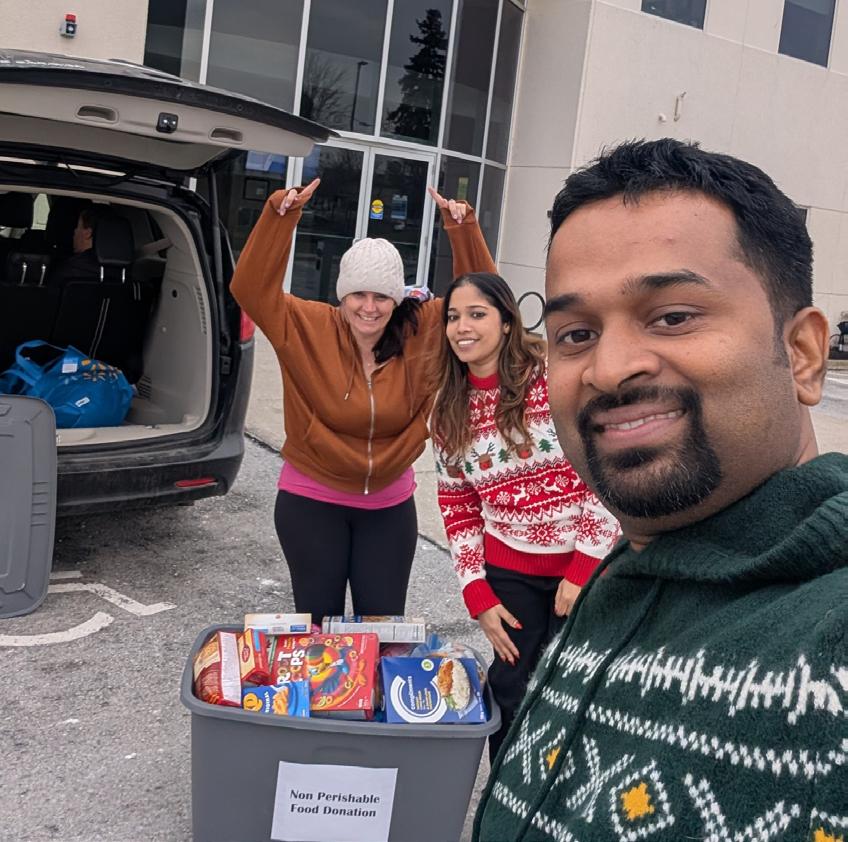
We are going to continue building this legacy of kindness and giving back to our community, because when we give together, we grow stronger together
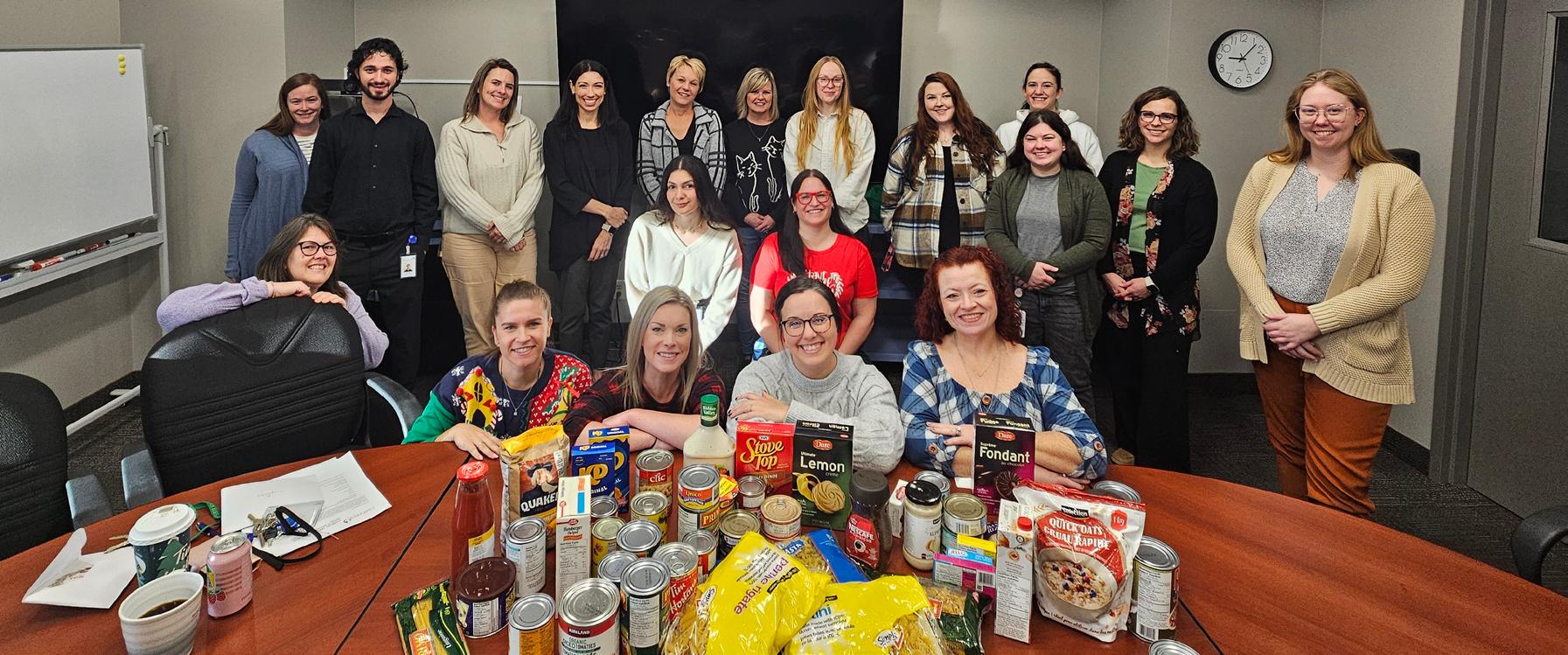
Imagine a career where every day brings the chance to uplift someone’s life and where your work helps people with intellectual and/or developmental disabilities live with greater independence, dignity, and joy. That’s the meaningful path of a Developmental Support Worker, and it’s a message that’s beginning to resonate with the next generation.
On November 20, 2024, more than 1,700 high school students gathered at the Level Up! Skilled Trades Career Fair in Niagara Falls to explore future career options, and Bethesda was proud to be part of the conversation.
Our Human Resources team connected with students throughout the day, sharing stories and insights about the deeply rewarding work of supporting people with developmental and/or intellectual disabilities. Through sharing stories and open dialogue, we helped students envision how they could make a real difference in their own communities.
The event was a tremendous success, not only for the students who discovered new career paths but for the future of Developmental Services across the Niagara region. We’re excited to see more young people inspired to step into roles that truly matter: roles that change lives, foster inclusion, and build stronger communities.
Bethesda is honoured to help guide this journey, one student at a time.
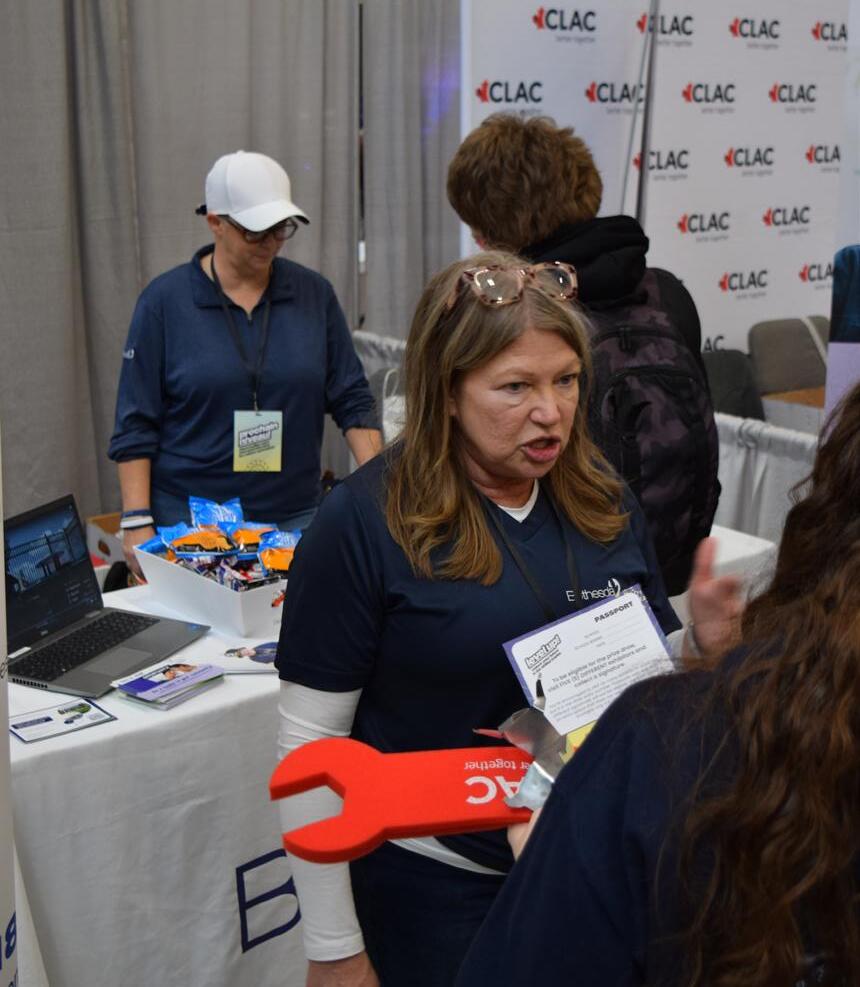

What does it look like to truly make a difference in someone’s life? That’s the question we explored with students during a recent event focused on raising awareness about the life-changing work in the Developmental Services sector.
Throughout the day, our Human Resources team connected with young people who are beginning to imagine their futures. Through personal stories and heartfelt conversations, we painted a picture of what it means to support people with developmental and/or intellectual disabilities and how deeply rewarding that work can be. The students were engaged, curious, and open to the possibilities of how they, too, could have a meaningful impact in their own communities.
By introducing the wide range of career paths available in the Developmental Services sector, we offered students a new lens through which to view their post-secondary goals. We also took the opportunity to share ways they could get involved now, including volunteering with our organization.
The conversations were honest, hopeful, and full of potential. We left feeling encouraged—and we hope the students did too.
Job fairs are more than just recruitment events, they’re moments of connection, empowerment, and shared purpose. For the people we support, attending these fairs can be a powerful experience. They have the chance to explore career paths, build confidence in a professional setting, and tell their own stories about the meaningful ways they’ve been included and supported. It’s a space where their voices are heard and valued.
When our staff attend alongside them, the impact grows even stronger. As team members, we get to speak from the heart, sharing real stories about our workplace culture, personal career growth, and the difference our roles make every day. This firsthand perspective doesn’t just inform potential candidates it inspires them.
Together, we create a welcoming, inclusive presence that reflects who we are: a community dedicated to opportunity, growth, and belonging for everyone.
At Bethesda, it’s the people who bring our mission to life — and our staff are truly the backbone of that journey. Their compassion, dedication, and everyday acts of care make a real difference in the lives of those we support, and we’re deeply grateful for all they do.
In 2024–2025, several of our incredible team members and Board members reached meaningful milestones in their Bethesda journey. We celebrate and thank each of you for your unwavering commitment and the impact you continue to make.
40 Years
Rose Brenneman
30 Years
Alison Hodgkins
Bev Boden
Bill Jackson
25 Years
Janice Prudden
MaryAnne Fast
Michael Bain
Perry Van Veen
Shawna Gain
20 Years
Becki Van Baalen
Liz Graham
Francisco Fernandez
Matthew Whittington

Angela Kirton
Brenda Langelaan
Brian Lick
Anita Medcalf
Darcy Unruh
Karen Basset
Devon Koekoek
Kim Lane
Sabrina Smith
Meaghan Erb
Rebecca Spearin
Trevor Vandermaarel
Andrew Shaw
Breanna Caron
Chantel Klunder
Cheryl Tyndall
Emily Williams
Emma Hackney
Erica Roversi
Kendra Finlay
Kyle Tarrant
Mandy Lutczyn
Melissa Elliott Treasa Mason-Steff
At the heart of Bethesda is a community of dedicated individuals who bring care, creativity, and collaboration to life every single day. Whether supporting people in their homes, guiding young people toward brighter futures, delivering clinical care, or keeping the organization running behind the scenes their impact is profound and deeply felt.
These everyday moments of excellence, the kind gestures, the innovative ideas, the teamwork that lifts everyone, often happen quietly. But they deserve to be seen and celebrated.
To shine a light on the exceptional work happening across Bethesda, we launched a new Quarterly Employee Awards program in 2024-2025.
This initiative is about more than recognition, it’s about sharing the stories of how our values come to life through the people who live them. Each quarter, staff have the opportunity to nominate a colleague who exemplifies one of the following Bethesda Values:
• Respect and Compassion
• Collaboration
• Innovation
From there, one winner is selected in each category, from across all four operational programs:
• Adult Services
• Children and Youth Services
• Adult Clinical Services
• Administration
Please join us in celebrating the following team members who have been recognized by their colleagues for living our values in inspiring ways:
These individuals have demonstrated heartfelt care and empathy, often putting the needs of others first and creating spaces where everyone feels seen and supported.

• Ashleigh Geroux
• Melissa Gibson
• Chris Bell

• Shawn Lubinski
• Caitlin Powell
• Shawna Gain
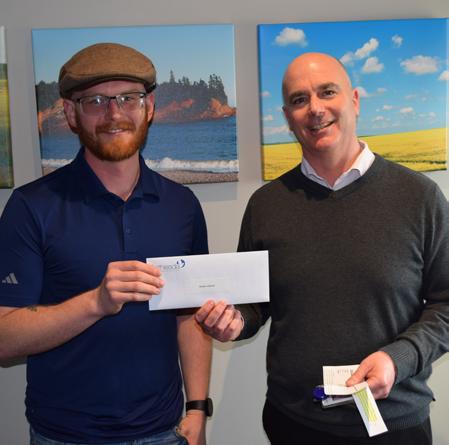
These team members bring people together, foster connection, and make teamwork feel seamless. They show us what’s possible when we support one another.

From fresh ideas to creative solutions, these individuals are always thinking ahead and finding better ways to serve, support, and lead.
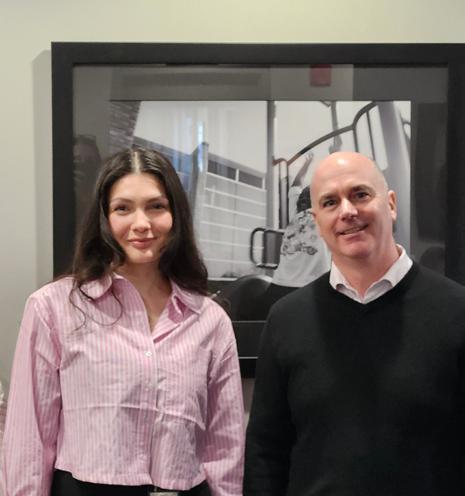
• Kim Whittington
• Katherine Sanderson
• Melissa Sullivan

• Paula Taylor
• Sarah Schmidt
• Allison Baxter

• Shannon Braun
• Melissa Field
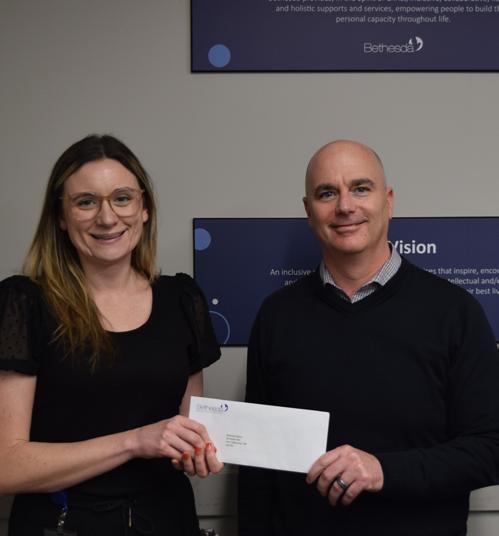

• Paige Moon
• Dani Brien
• Asude Ayvaci



Awards Bethesda was honoured to be the recipients of the following awards:

Lincoln Chamber of Commerce’s Outstanding Business Achievement Awards 2024 Non-Profit of the Year Award Finalist
At Bethesda, our strength lies in the dedication, compassion, and expertise of our people. Their tireless efforts not only enrich the lives of those we support but also inspire excellence within our community. In 2024, several Bethesda staff were honoured for their exceptional work. This recognition reflects the real impact they make every day.
In June 2024, Bethesda was thrilled to see two of our rising leaders recognized on a regional stage. Shannon Braun, our Human Resources Manager, and Meaghan Erb, Community Relations Manager, were both named finalists for the 2024 NBAA Young Professional of the Year Award by the Greater Niagara Chamber of Commerce. Their leadership, innovation, and unwavering commitment to people and community made a lasting impression among their peers.


On September 13, 2024 Bethesda staff joined local leaders and businesses at the Lincoln Chamber of Commerce’s Outstanding Business Achievement Awards (OBAAs). Four of our staff were nominated for the Outstanding Young Professional Award, sponsored by Meridian Credit Union Vineland and Beamsville Branches.
We extend heartfelt congratulations to:
• Shannon Braun, Manager of Human Resources
• Kendra Finlay, Clinical Supervisor
• Angela Kirton, Clinical Supervisor
And a special shout-out to Kailey Cheropita, Manager of Passport Services, who took home the award! Kailey’s recognition is a proud moment for Bethesda and a testament to her dedication to empowering people and families through her work.

In November 2024, Bethesda’s Leah Jeffery, Clinical Manager and Trauma-Informed Lead in Adult Clinical Services, was honoured at the Women In Business Awards hosted by the Greater Niagara Chamber of Commerce. Leah received the Healthcare Hero Award, a recognition that speaks volumes about the passion and heart she brings to her work every day.
Leah’s leadership in Trauma-informed Care and her unwavering support for those she serves have left a profound mark on the community. Her colleagues describe her as someone whose passion is contagious, lifting others up and inspiring excellence across the organization.
We are proud of every Bethesda staff who was nominated, recognized, or awarded this year. These moments remind us that excellence grows where people lead with heart. Congratulations to all of our staff, and to all the deserving nominees and winners across Niagara—we celebrate you!
In 2024, one of our fields in Vineland did more than grow crops, it helped raise $33,265 to support emergency food aid and agricultural training for communities facing hunger around the world.
This incredible impact was made possible through Bethesda’s continued partnership with Campden Grain and Mennonite Central Committee Ontario (MCCO). Each year, Bethesda donates a portion of its agricultural land for Campden Grain to farm as part of Grow Hope Niagara, a local initiative supporting the Canadian Foodgrains Bank.
At Bethesda, caring for people is woven into everything we do. Whether close to home or across the globe, we look for meaningful ways to live out our Mission and extend hope to others. Seeing how a simple plot of land can transform into lifegiving support is a powerful reminder of what can happen when community comes together with purpose.
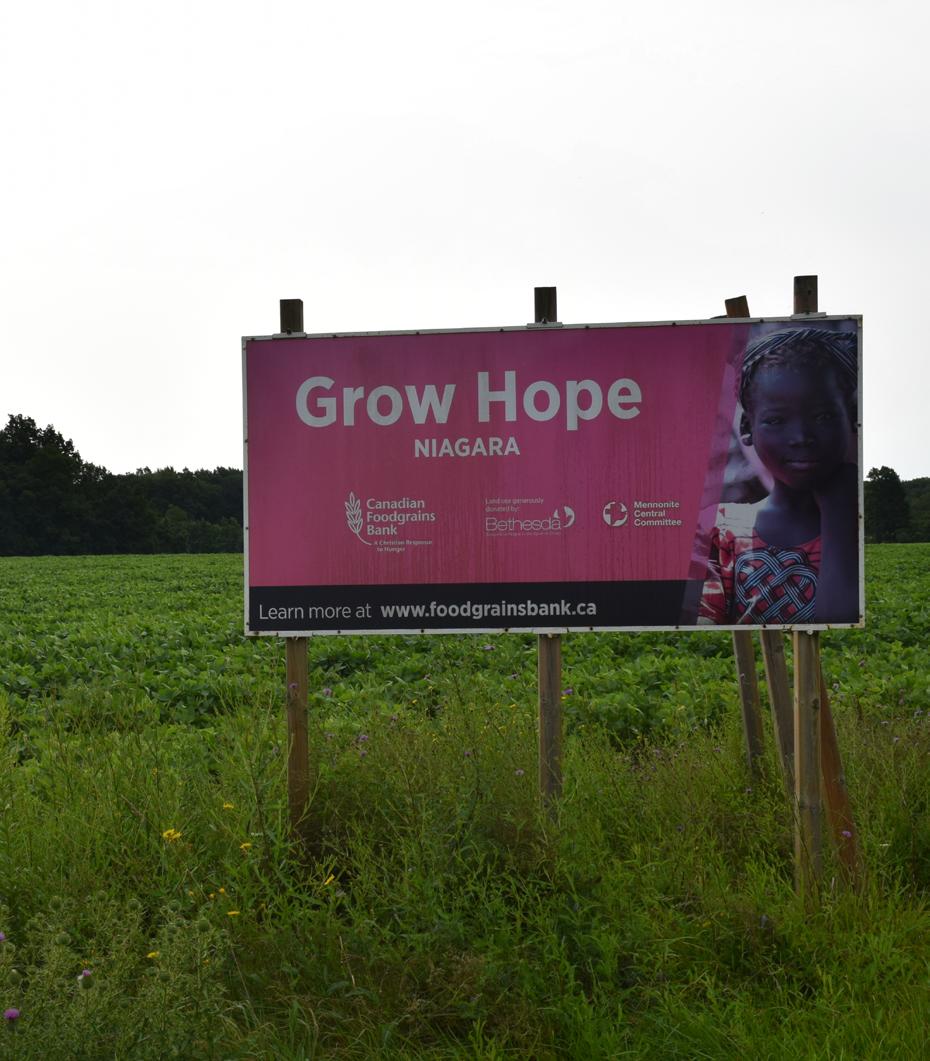
In November 2024, Bethesda took part in a journey that was about much more than travel—it was about connection, collaboration, and community. A team of four Behaviour Analysts from Bethesda, along with three Speech Language Pathologists and Occupational Therapists from New York, travelled to the stunning Turks and Caicos Islands, united by a shared goal: to listen, to learn, and to support lasting change for children with developmental needs.
Representing Bethesda were Nancy Leathen and Kendra Finlay from Adult Clinical Services, and Monica Hughes and Chelsea Bastasin from Children and Youth Services. Together, they brought a wealth of knowledge, compassion, and commitment to the work ahead.
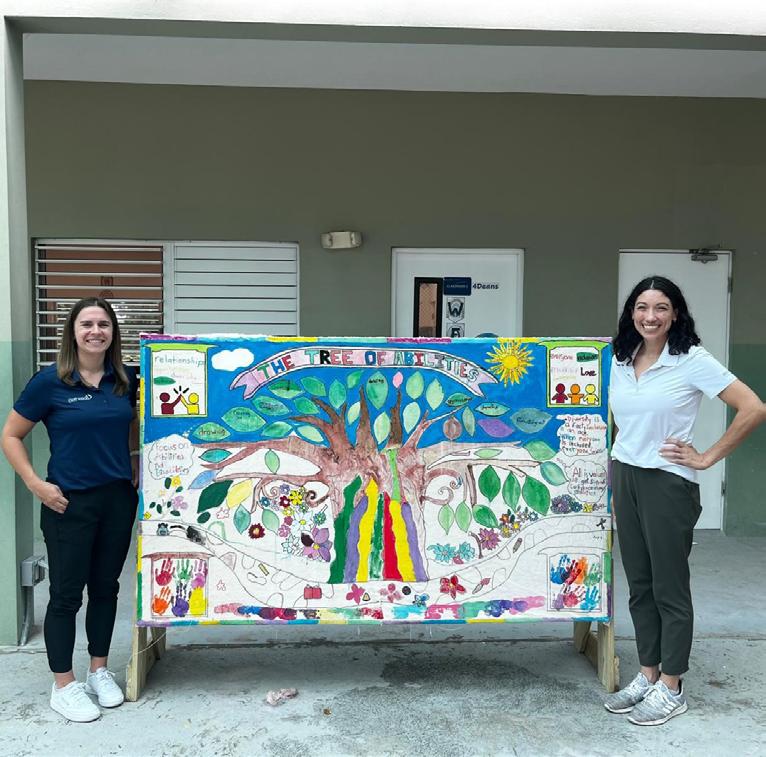
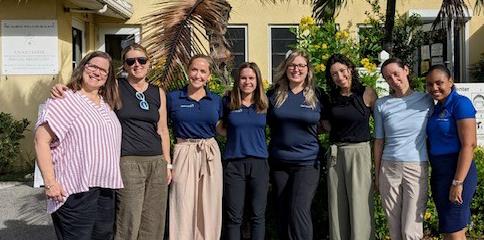
This initiative was made possible through a partnership with 1 World Foundation, a volunteer-driven organization based in the U.S. and Canada that supports people with disabilities around the globe. Hosted by the Ministry of Education in Turks and Caicos— whose Special Education department is still in its early stages—the clinical team embarked on a weeklong journey across three islands, connecting with students, educators, caregivers, and community leaders.
Split into two teams, the clinicians visited several schools where they were warmly welcomed by passionate teachers and staff eager to build more inclusive learning environments. During the visit, over 40 children were assessed for speech delays, sensory needs, and behavioural profiles. Each child received a tailored report, complete with practical strategies to help caregivers and teachers better support their development and strengthen their Individualized Education Program (IEP) goals.
What stood out most during this journey was the unwavering spirit of the local community. Though the Special Education department in Turks and Caicos is newly formed, the Ministry of Education has shown extraordinary dedication to making education more inclusive and accessible. School administrators and officials embraced the visiting clinicians with open arms, reinforcing a shared vision of equity in education.
The teachers, too, were nothing short of inspiring— using creativity and resourcefulness to foster welcoming classrooms where all students can thrive. And the families? Their determination and deep love for their children made clear just how powerful communitydriven change can be.
While the visit lasted only a week, the seeds planted during that time will continue to grow. Thanks to strong partnerships and a shared commitment to every child’s potential, Bethesda’s journey to the Turks and Caicos Islands has left a lasting mark—and helped pave the way for a brighter, more inclusive future.


Department of Special Education Needs Services
Ministry of Education, Youth, Sports, and Culture
Turks and Caicos Islands Government
